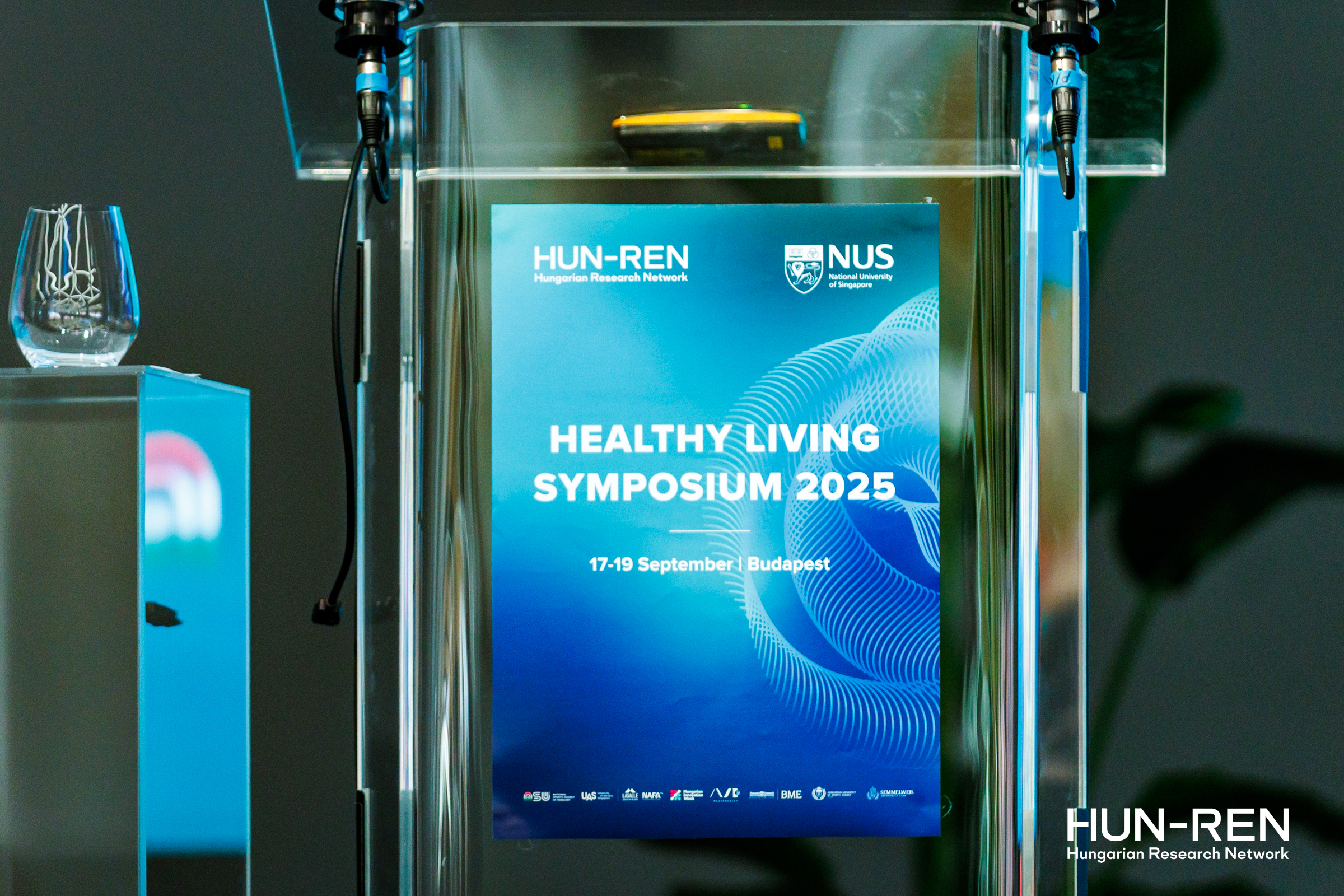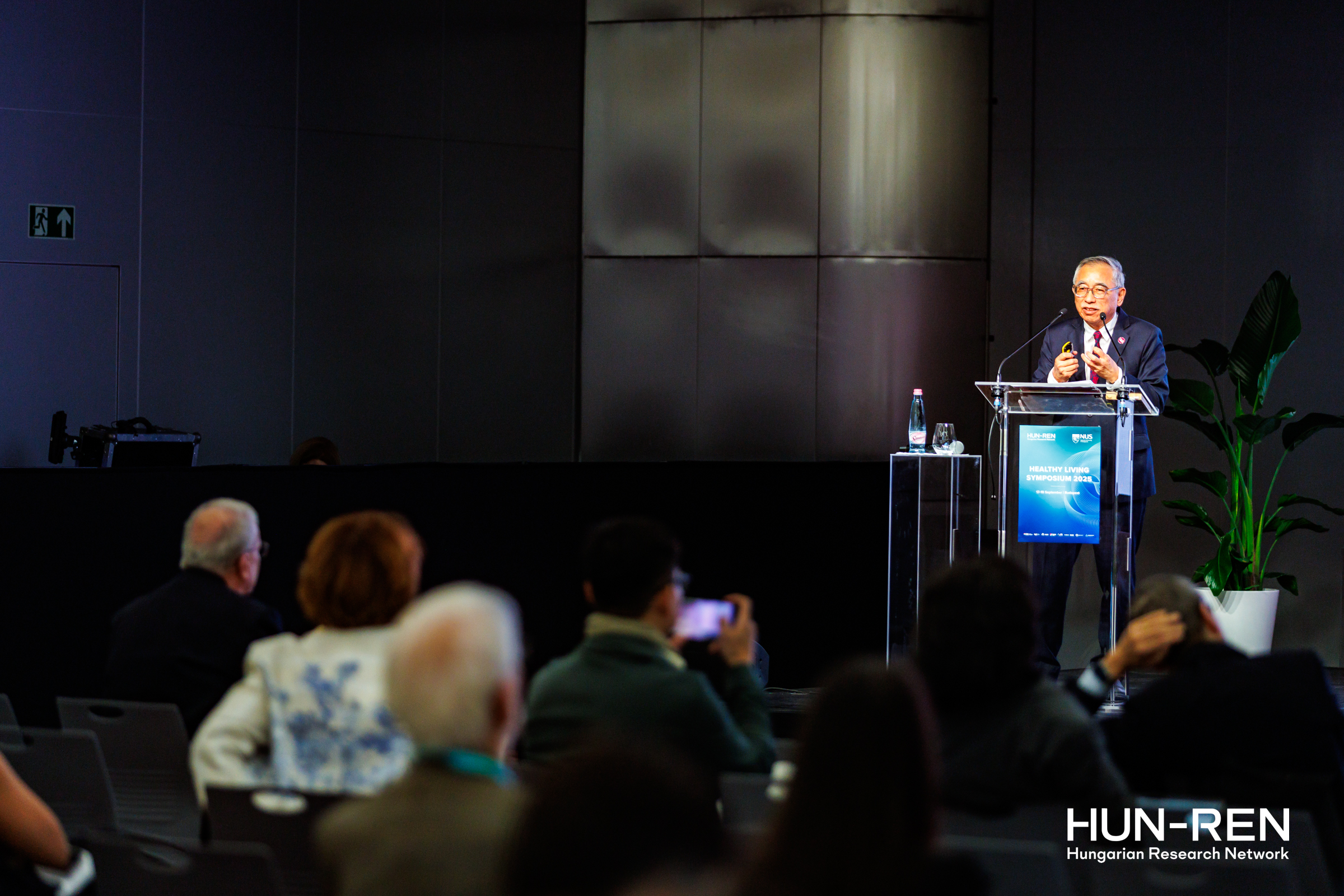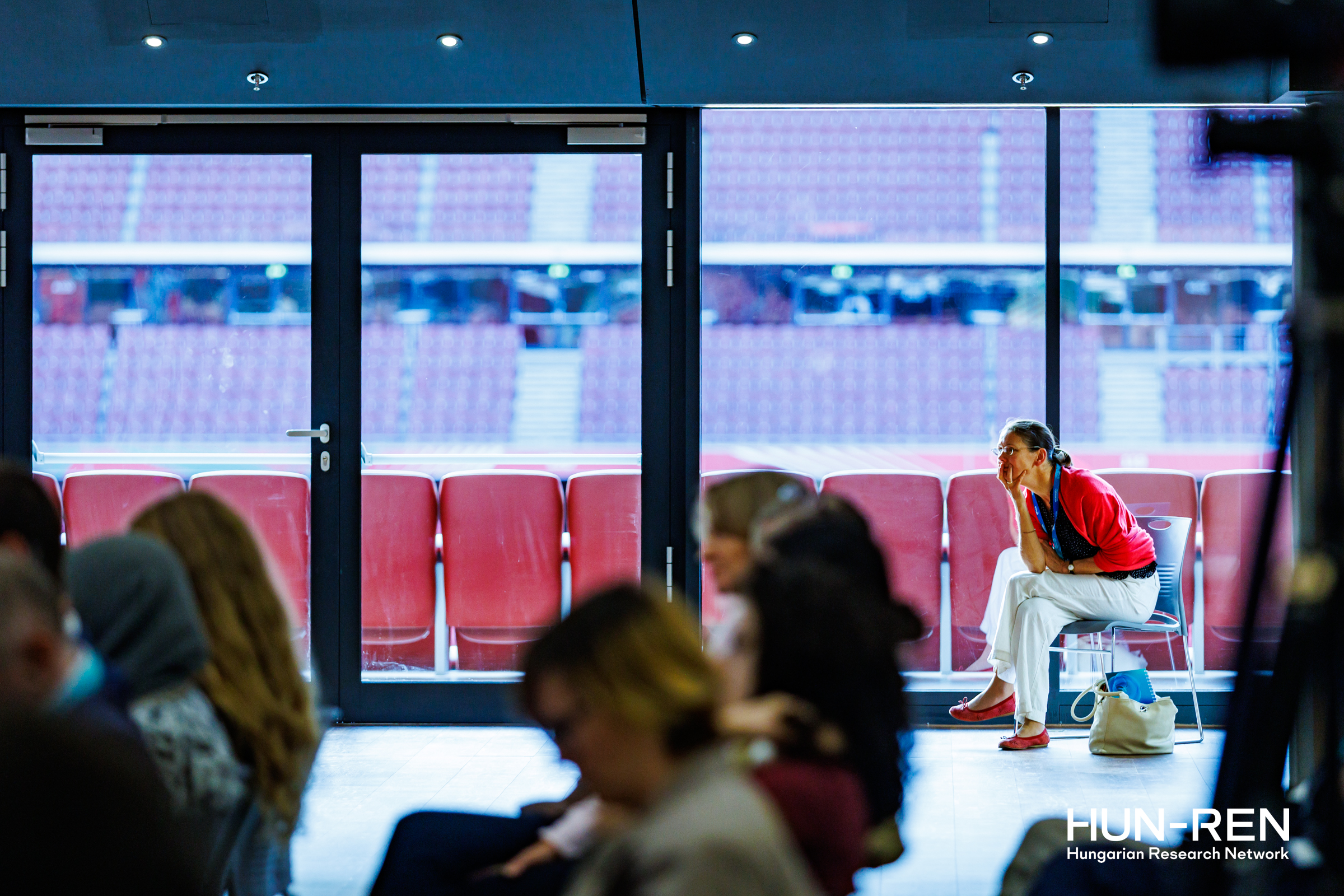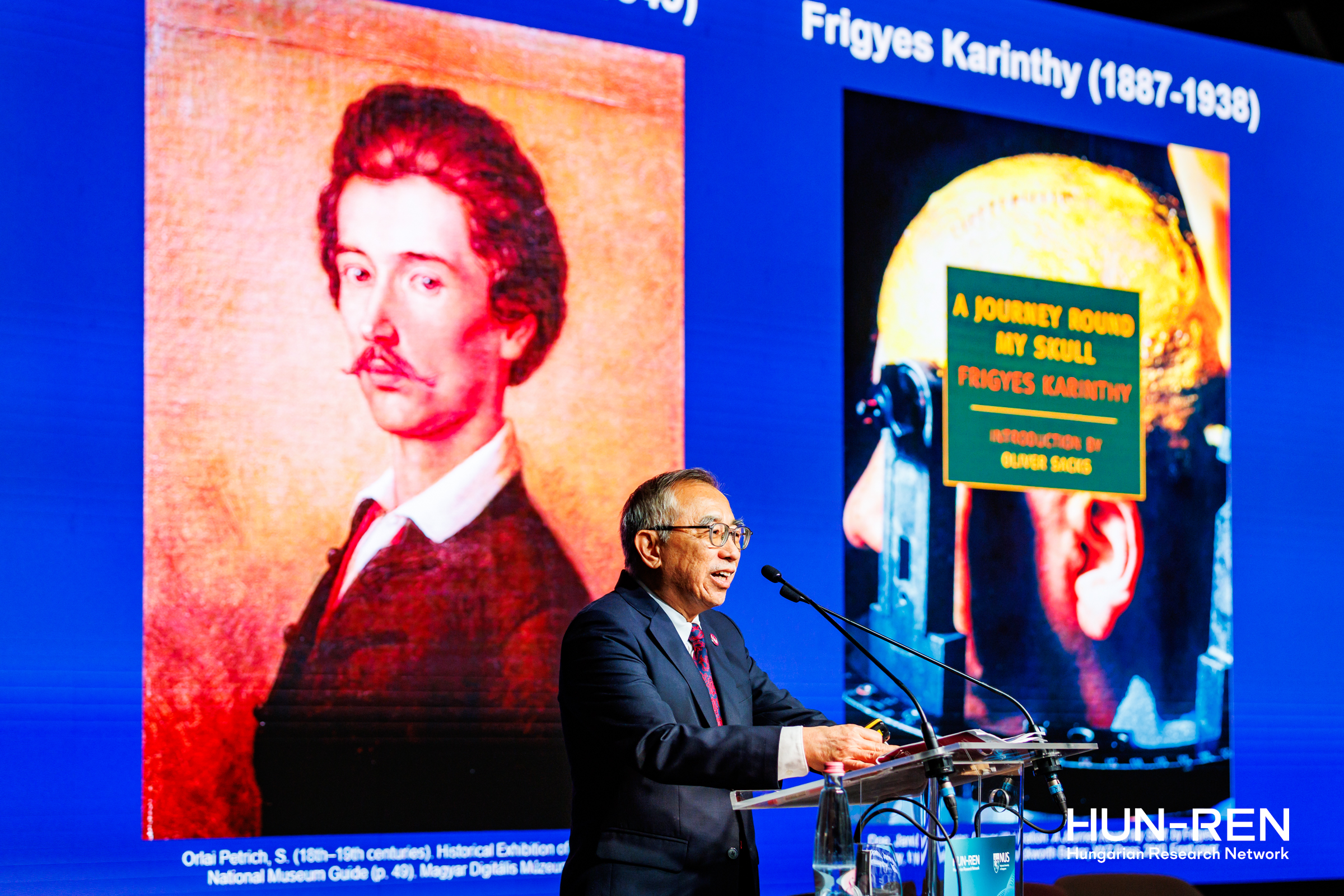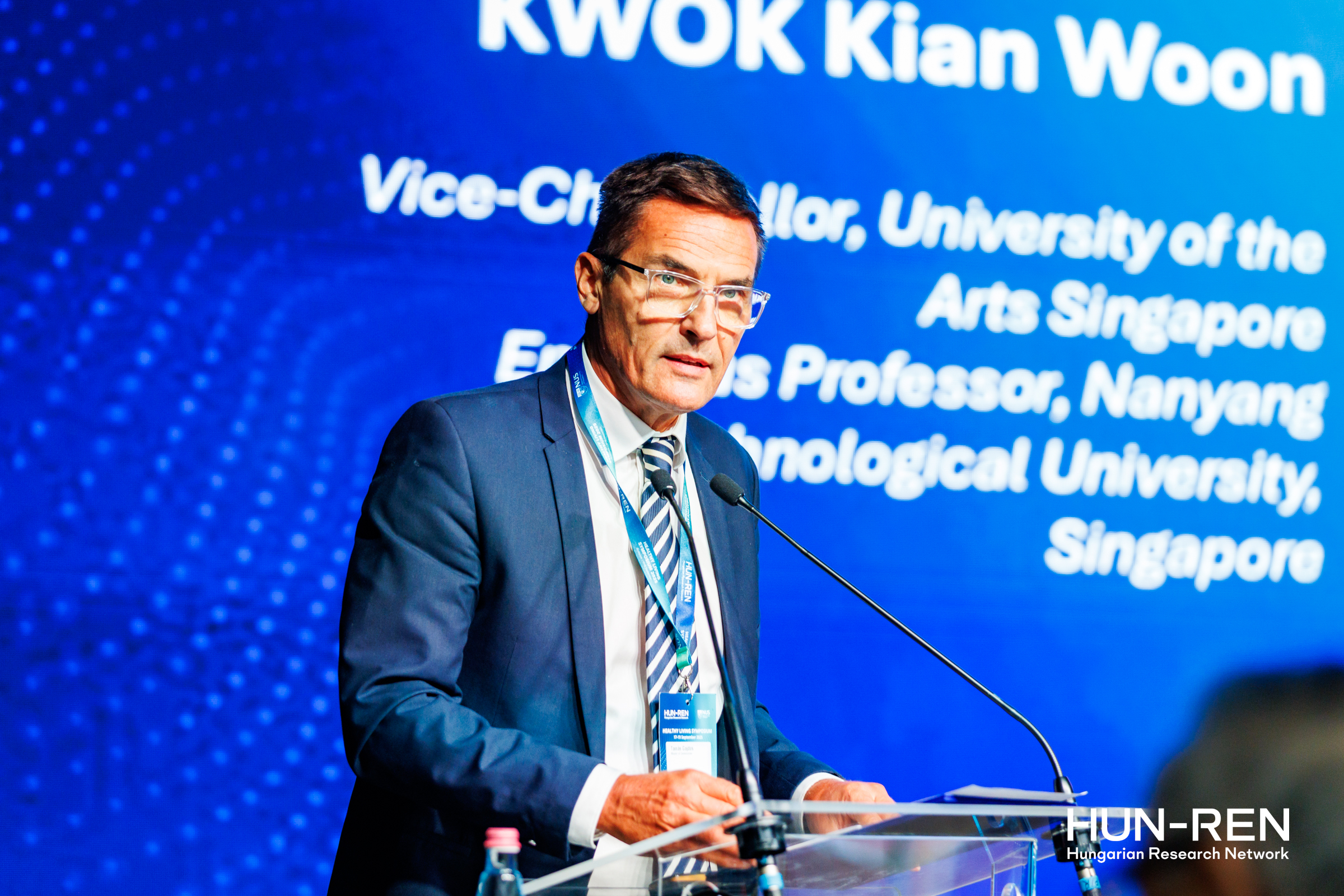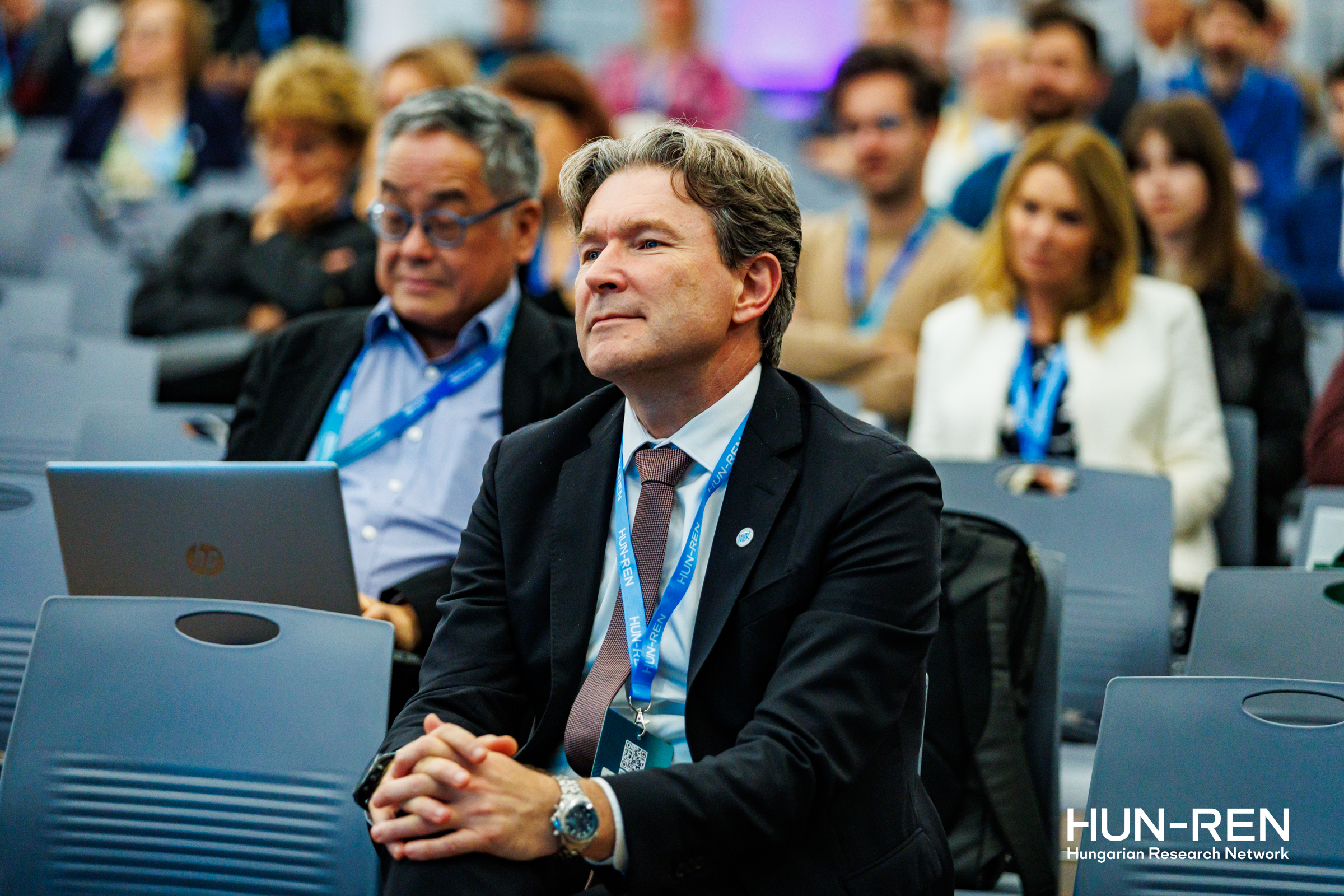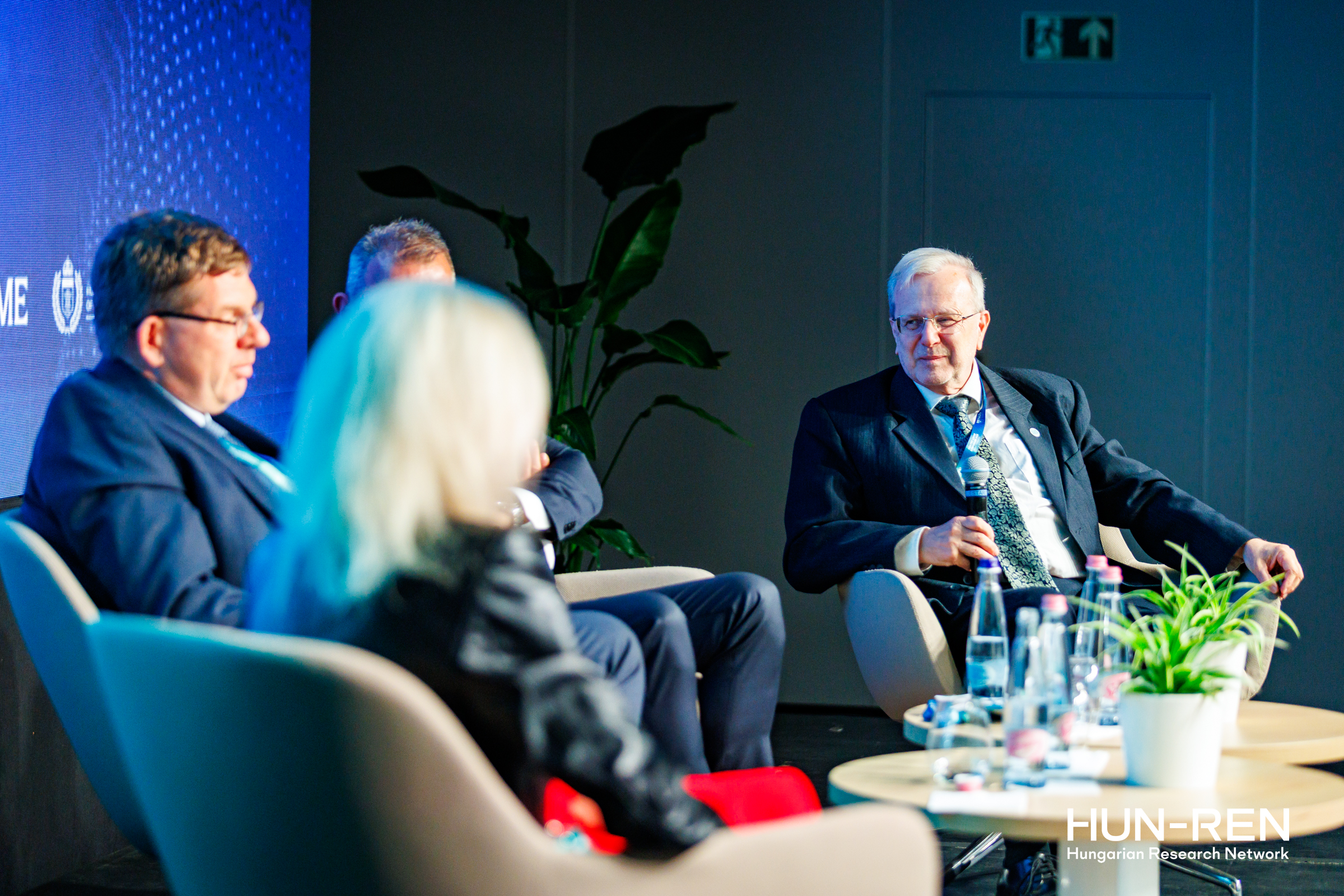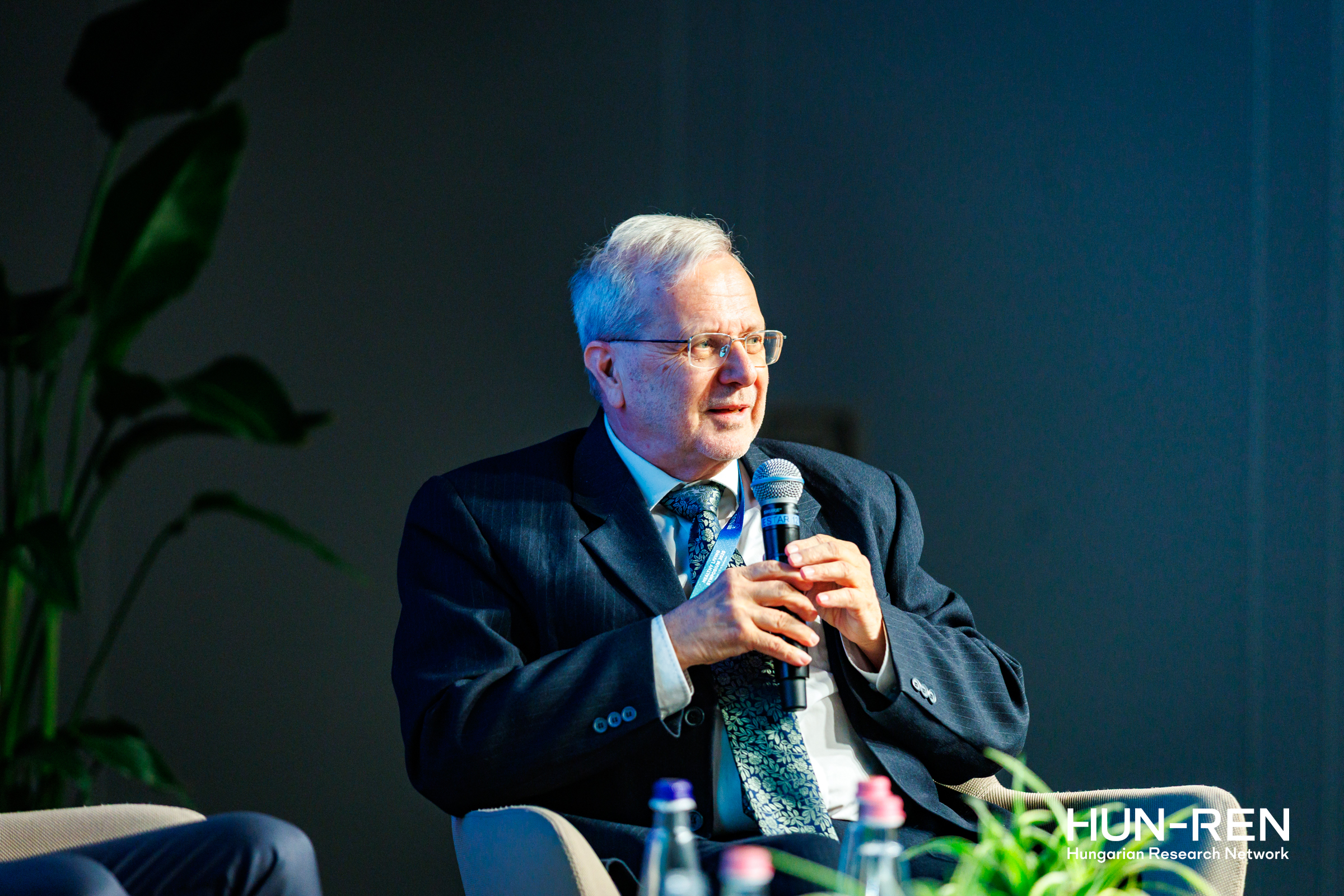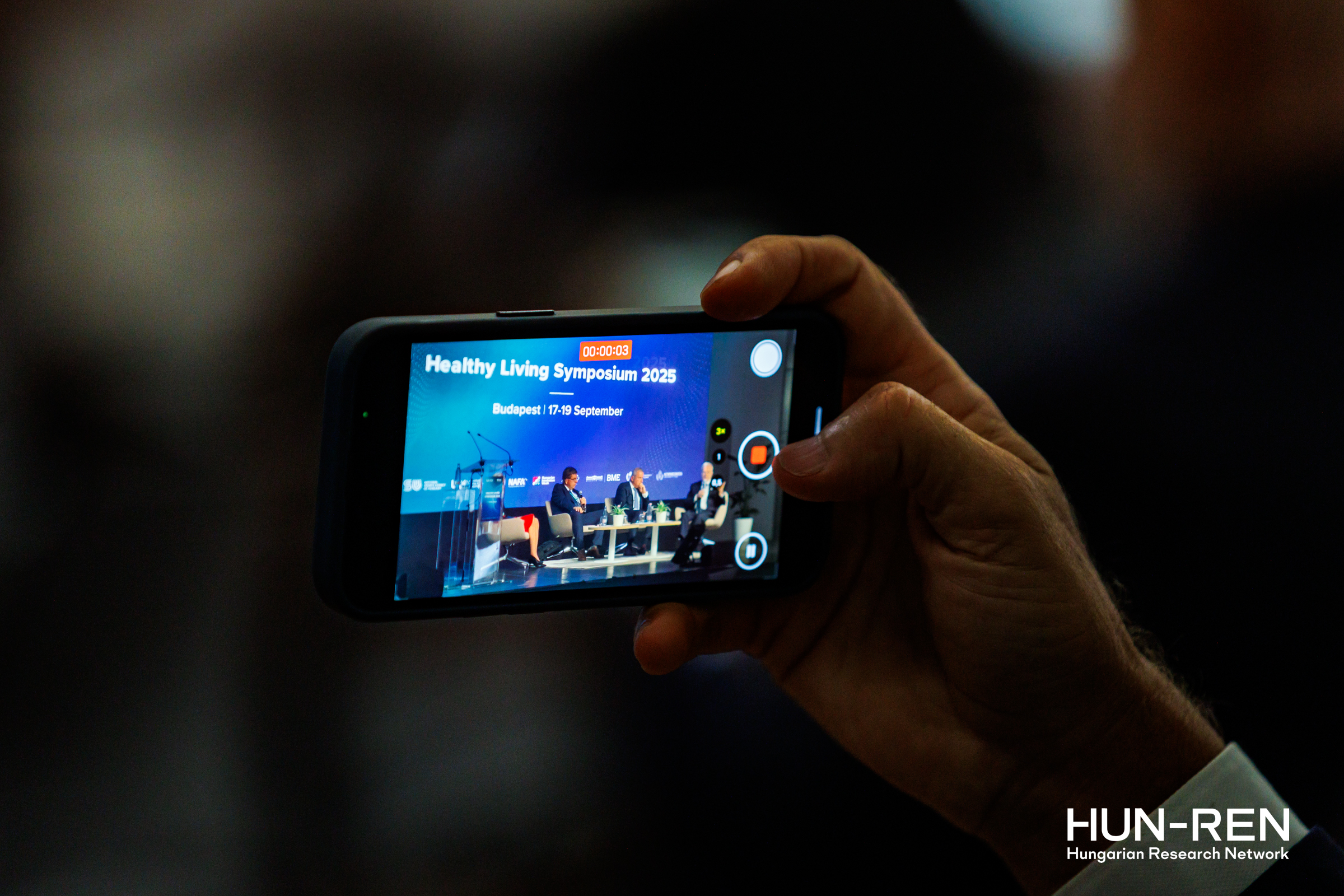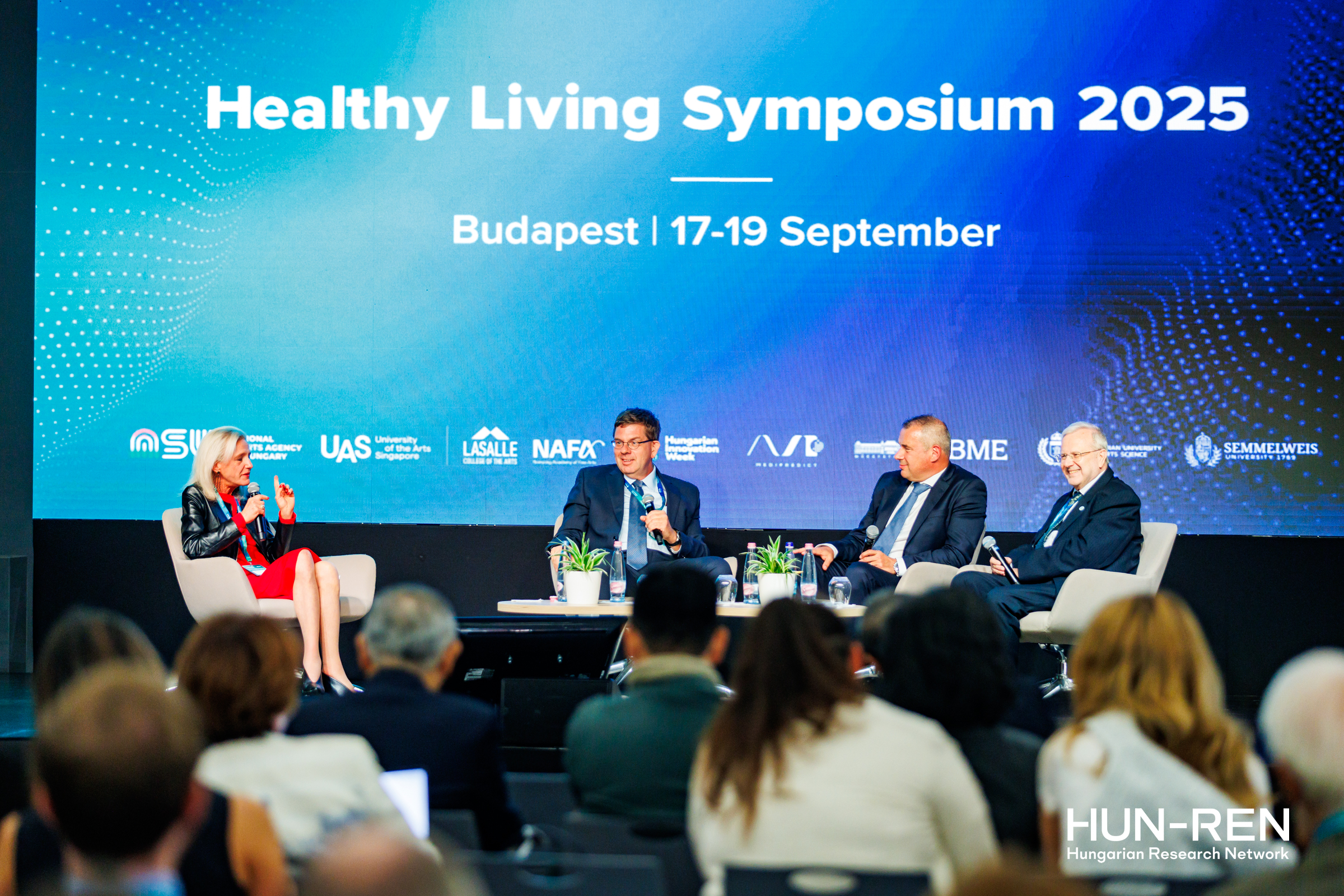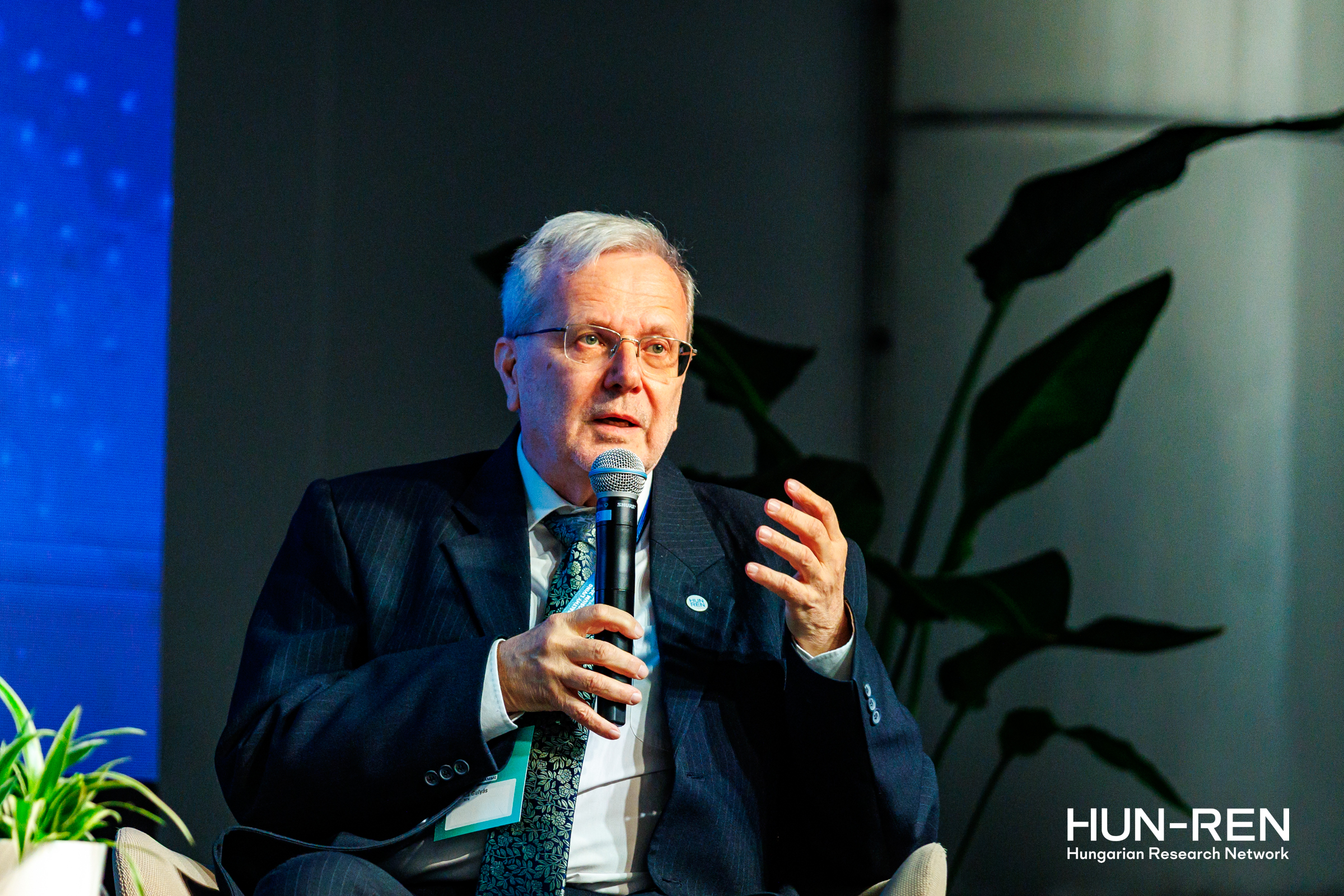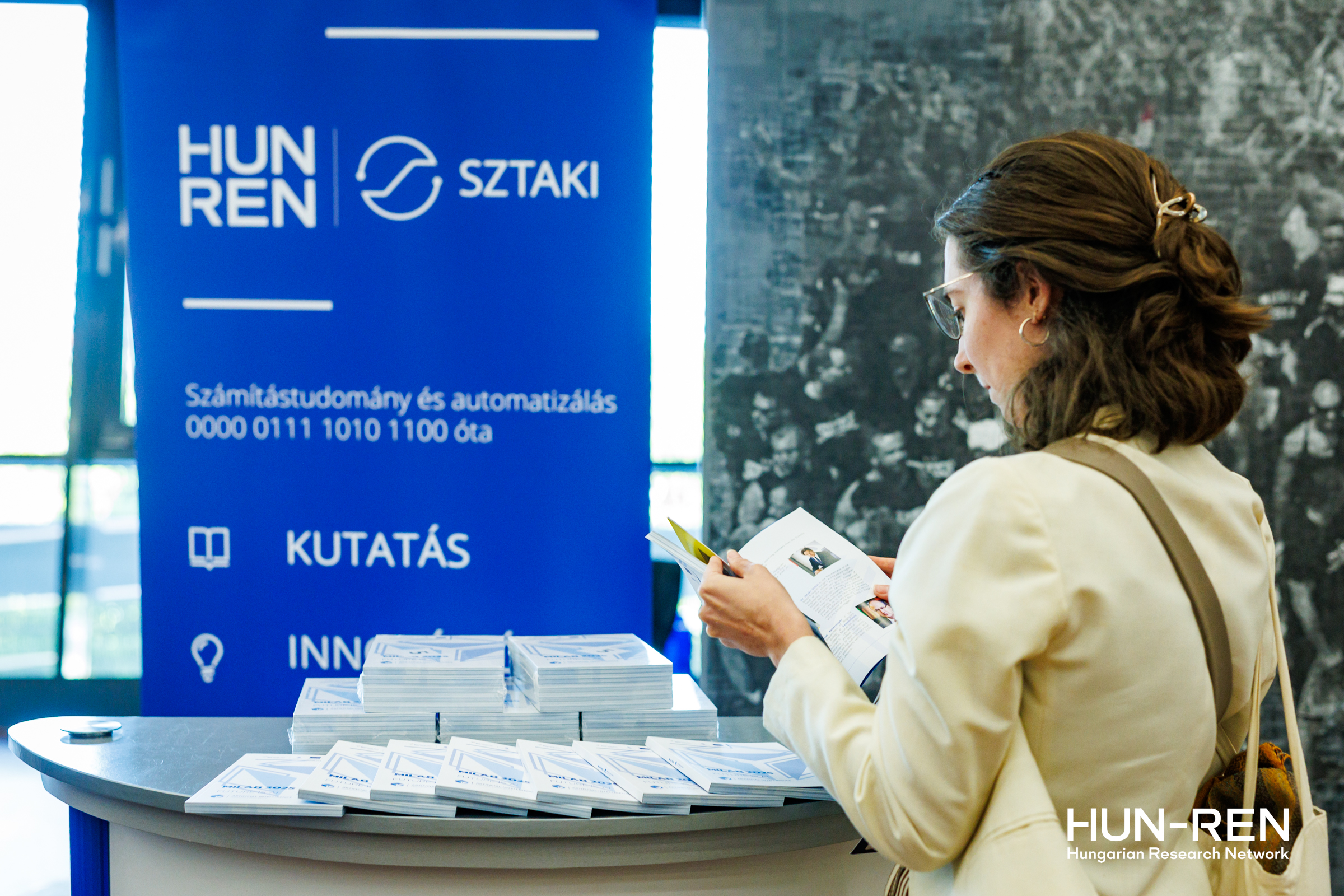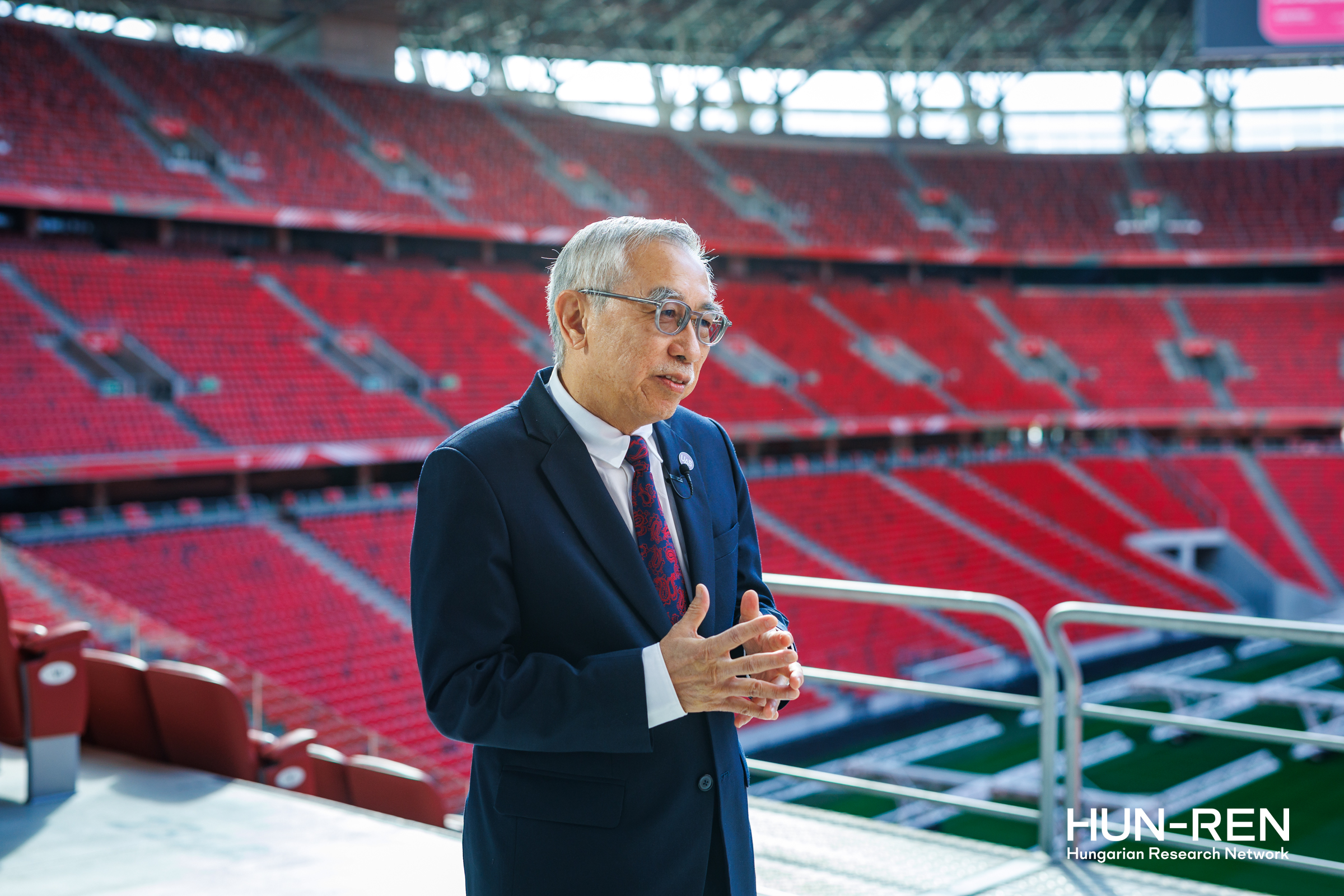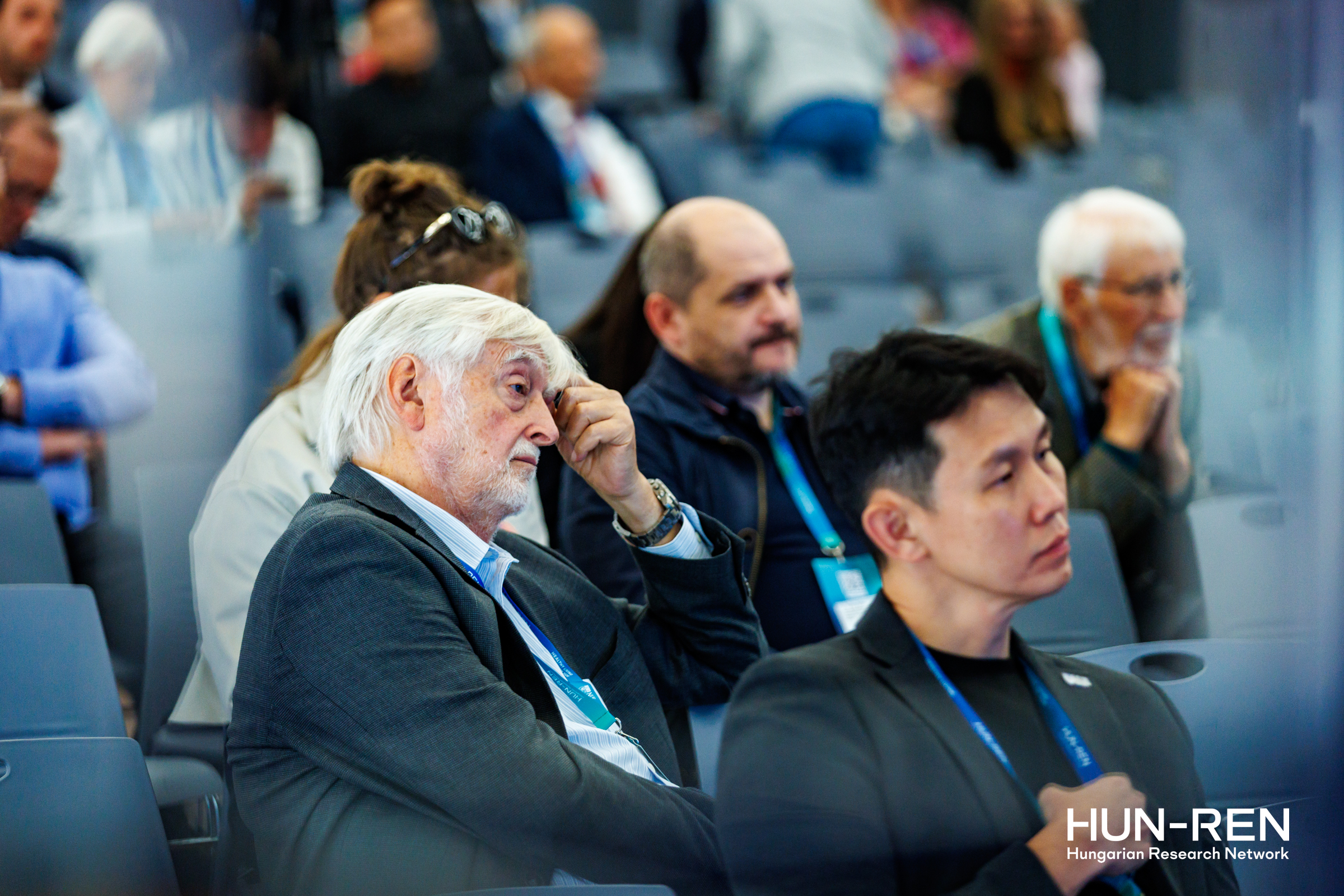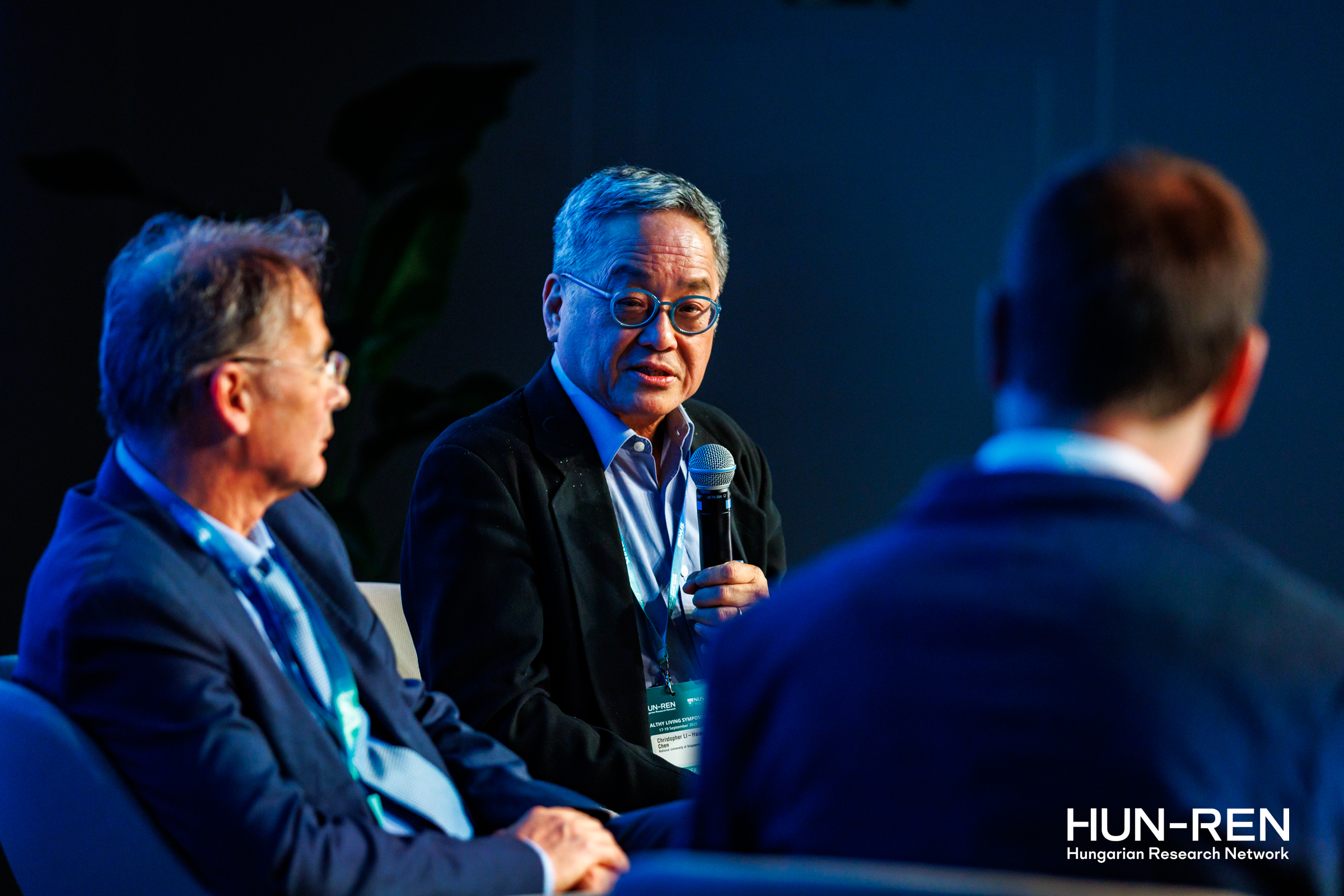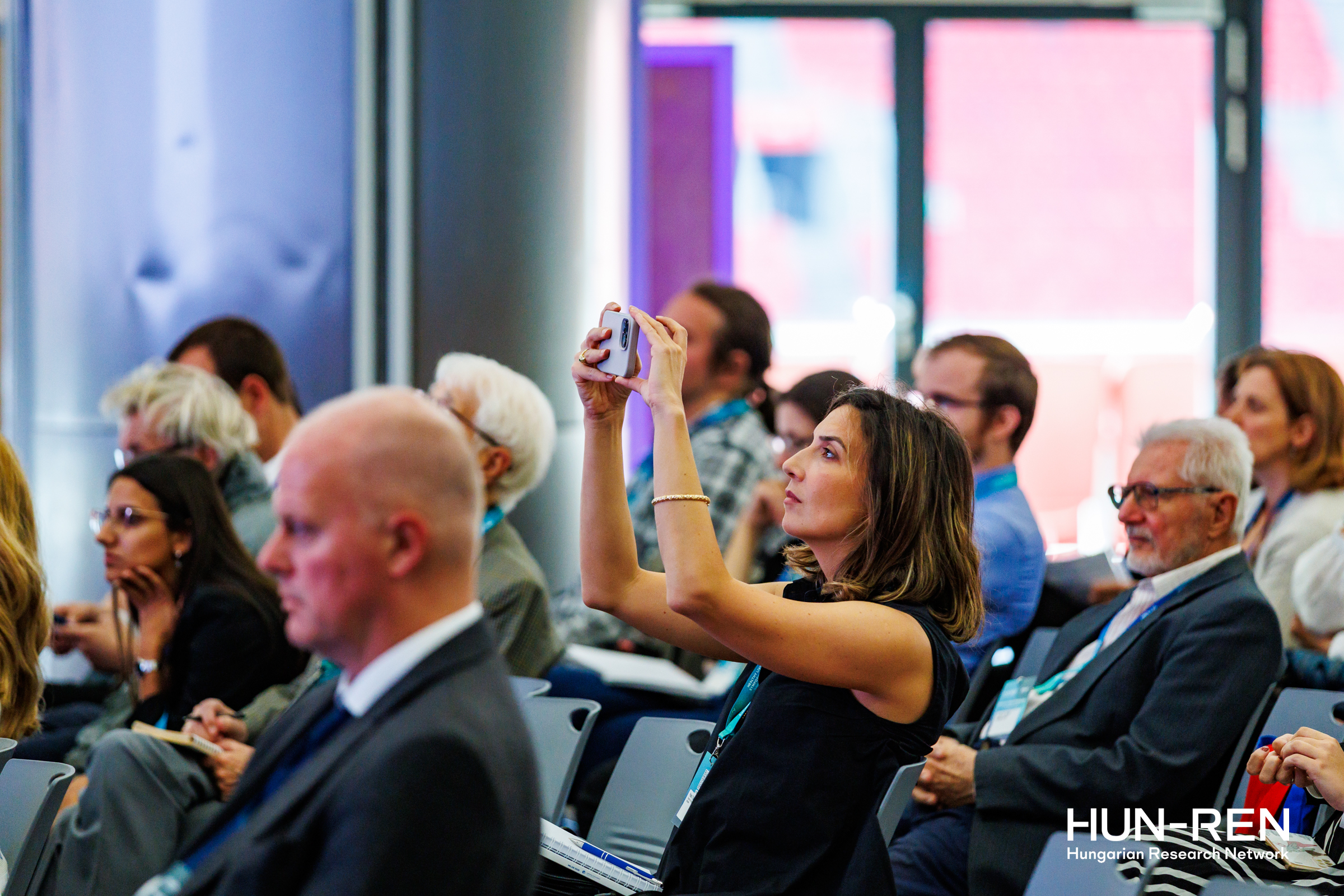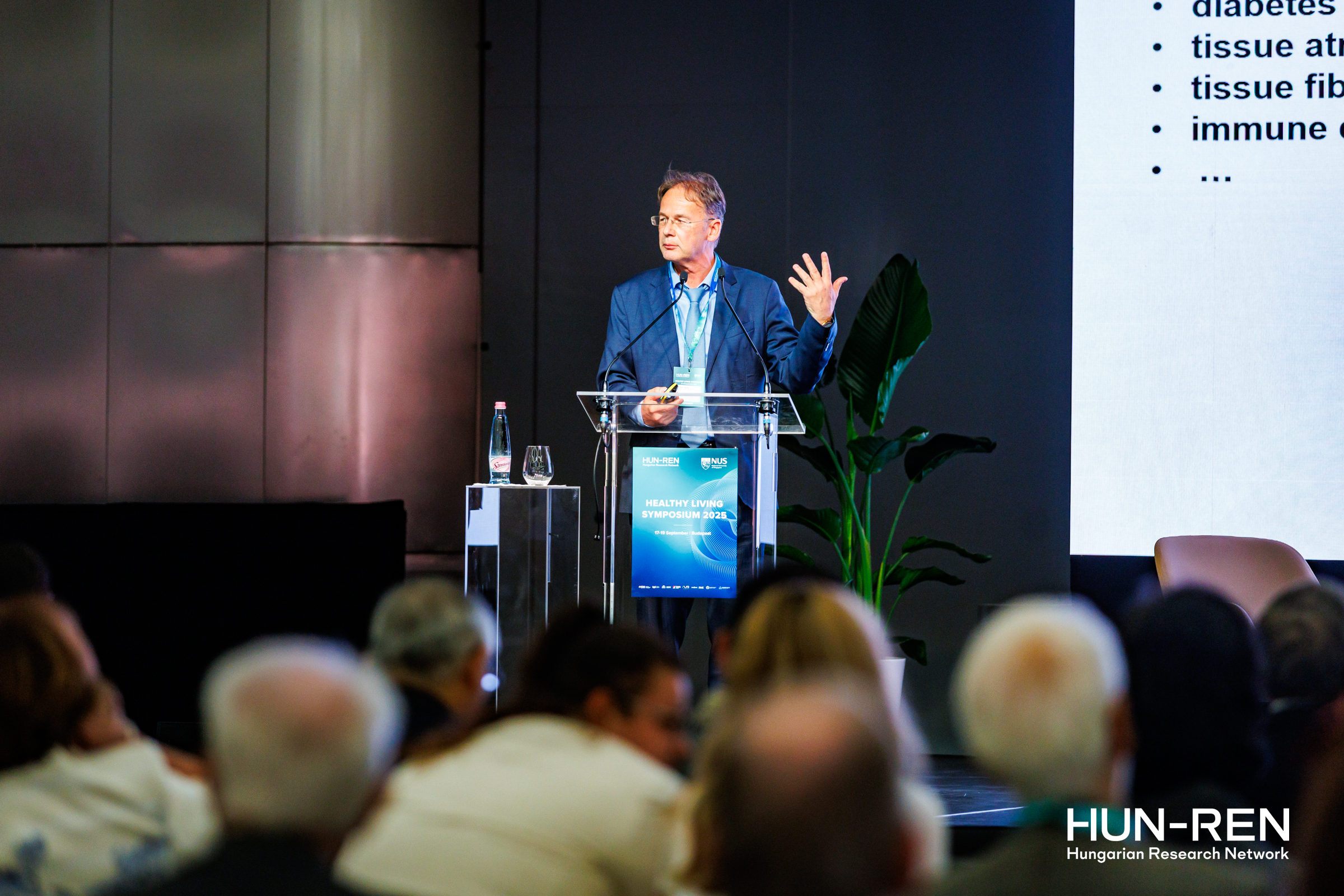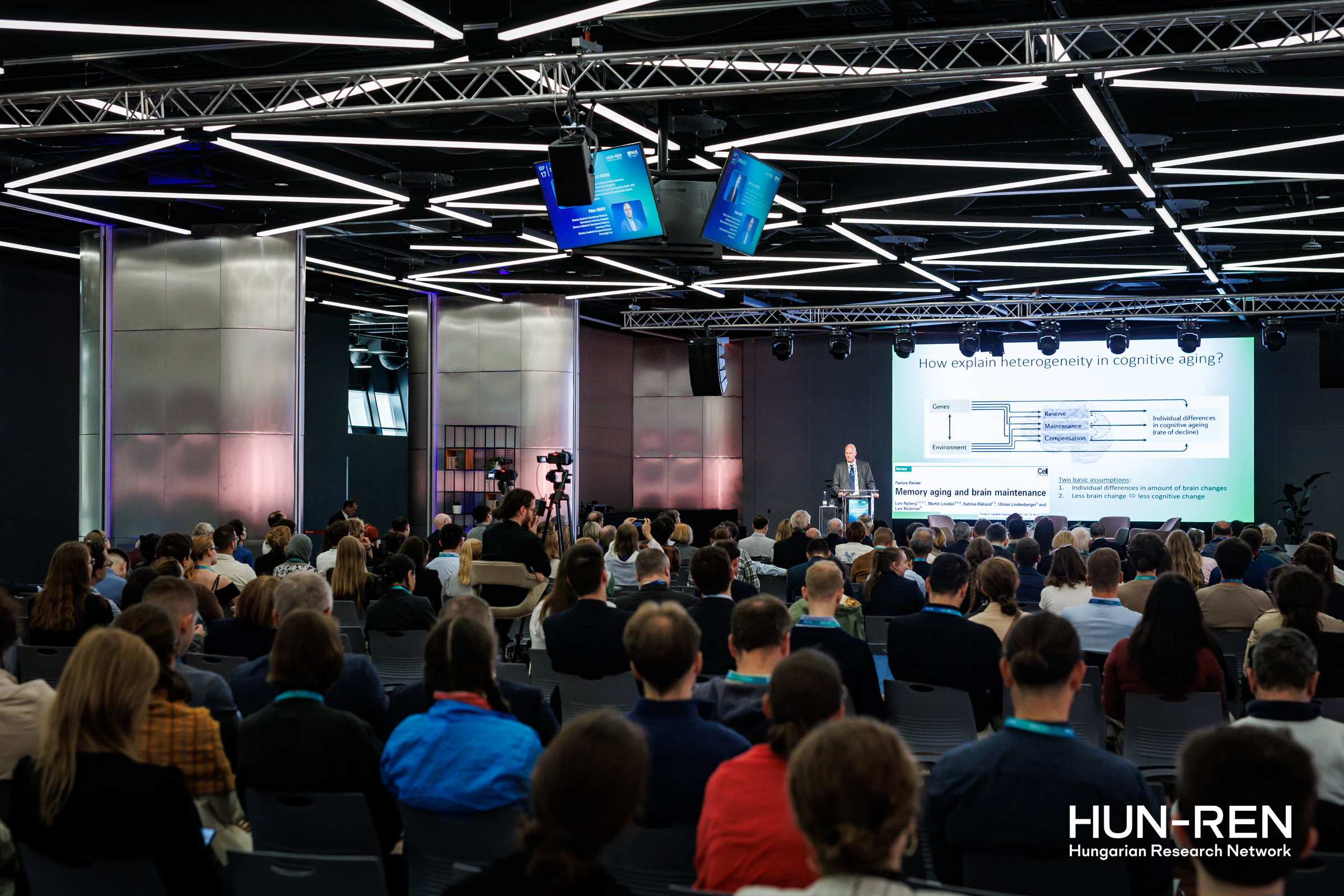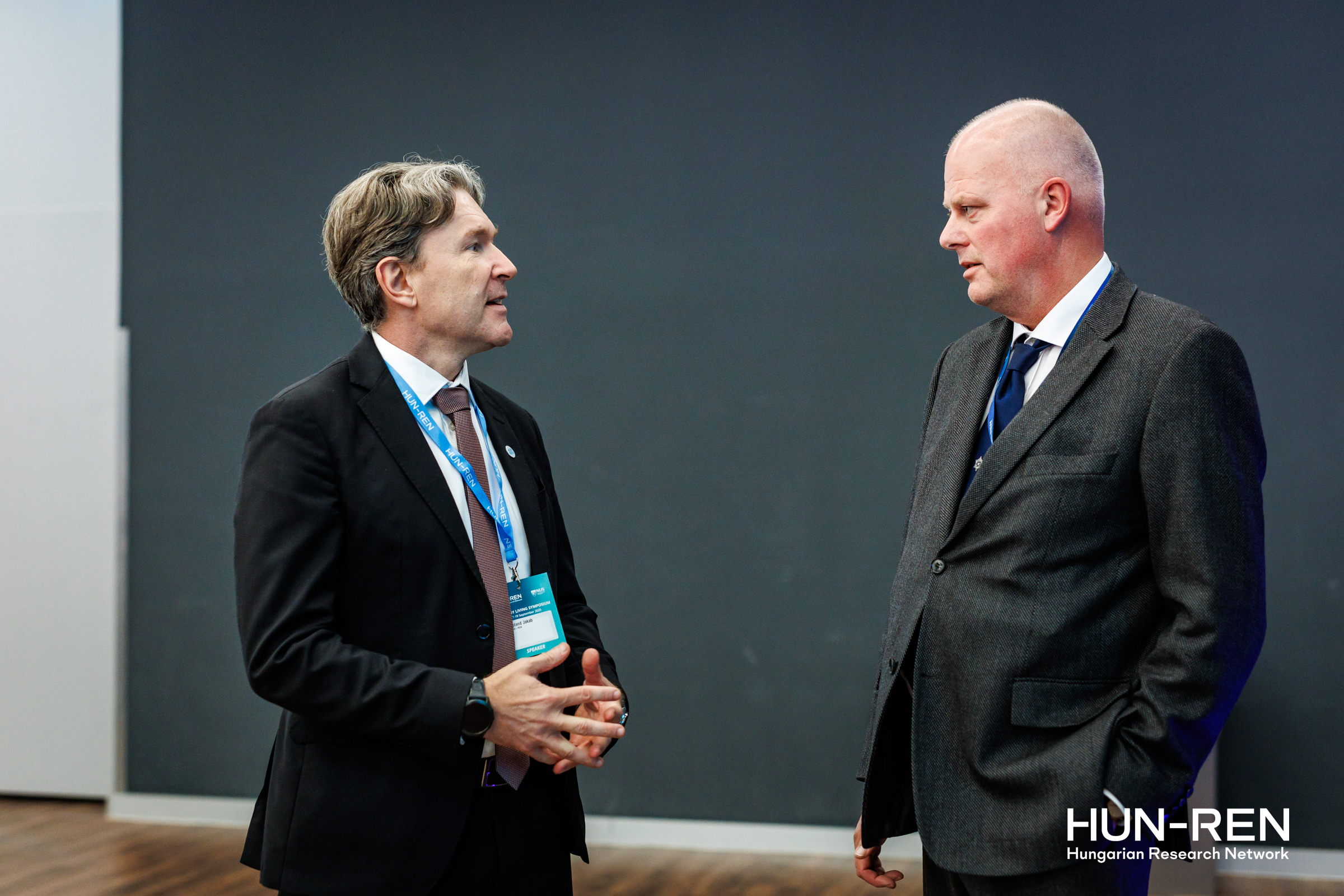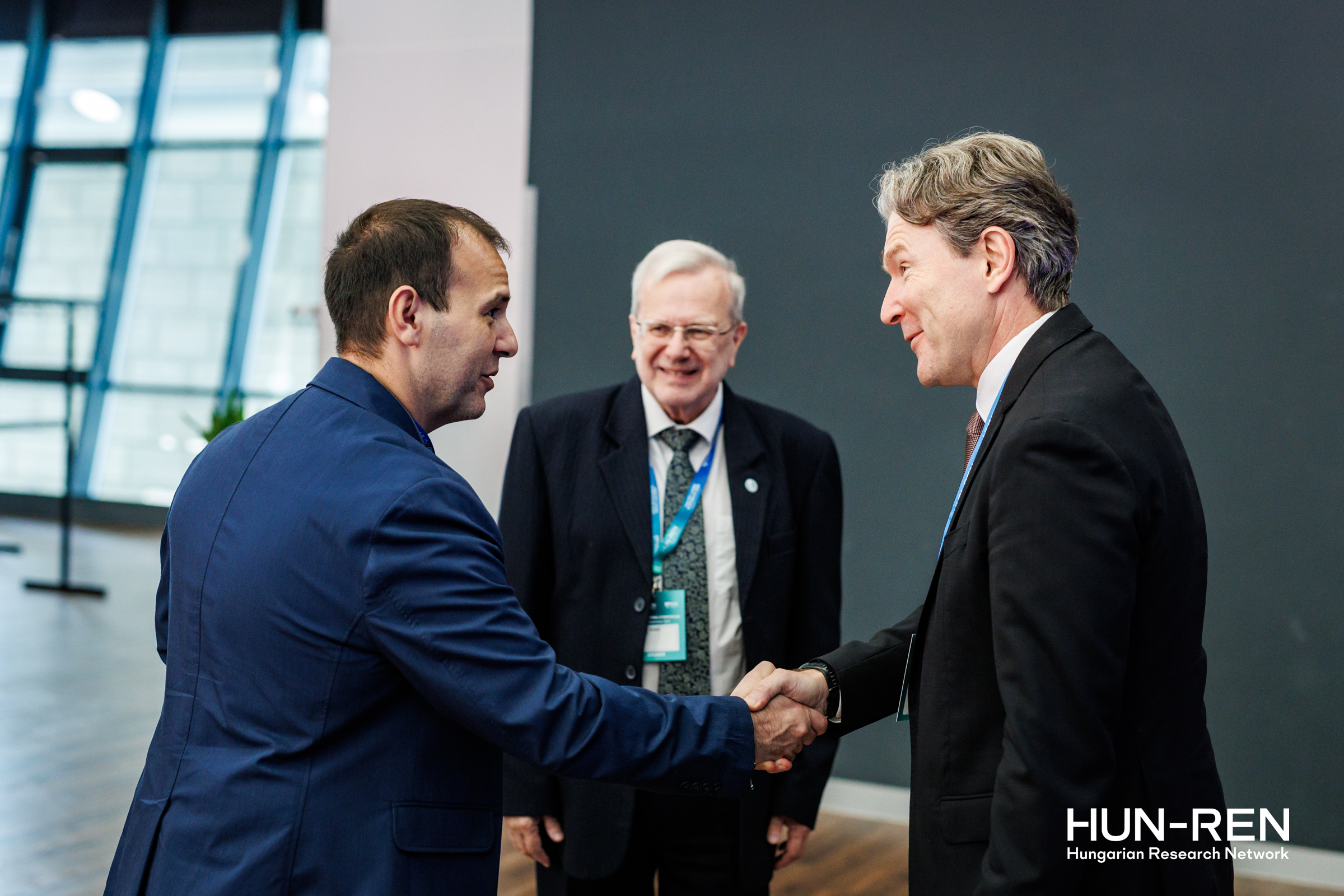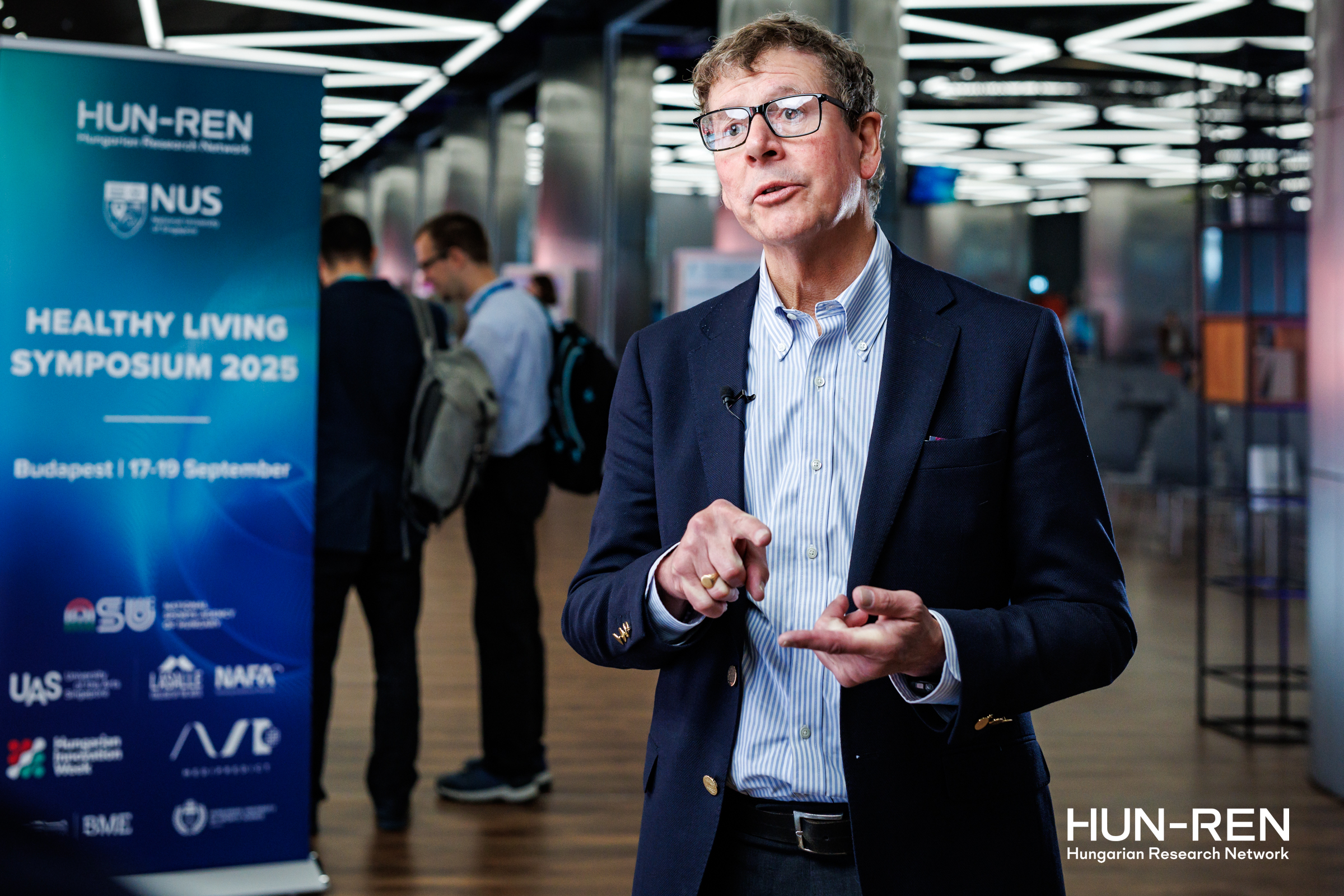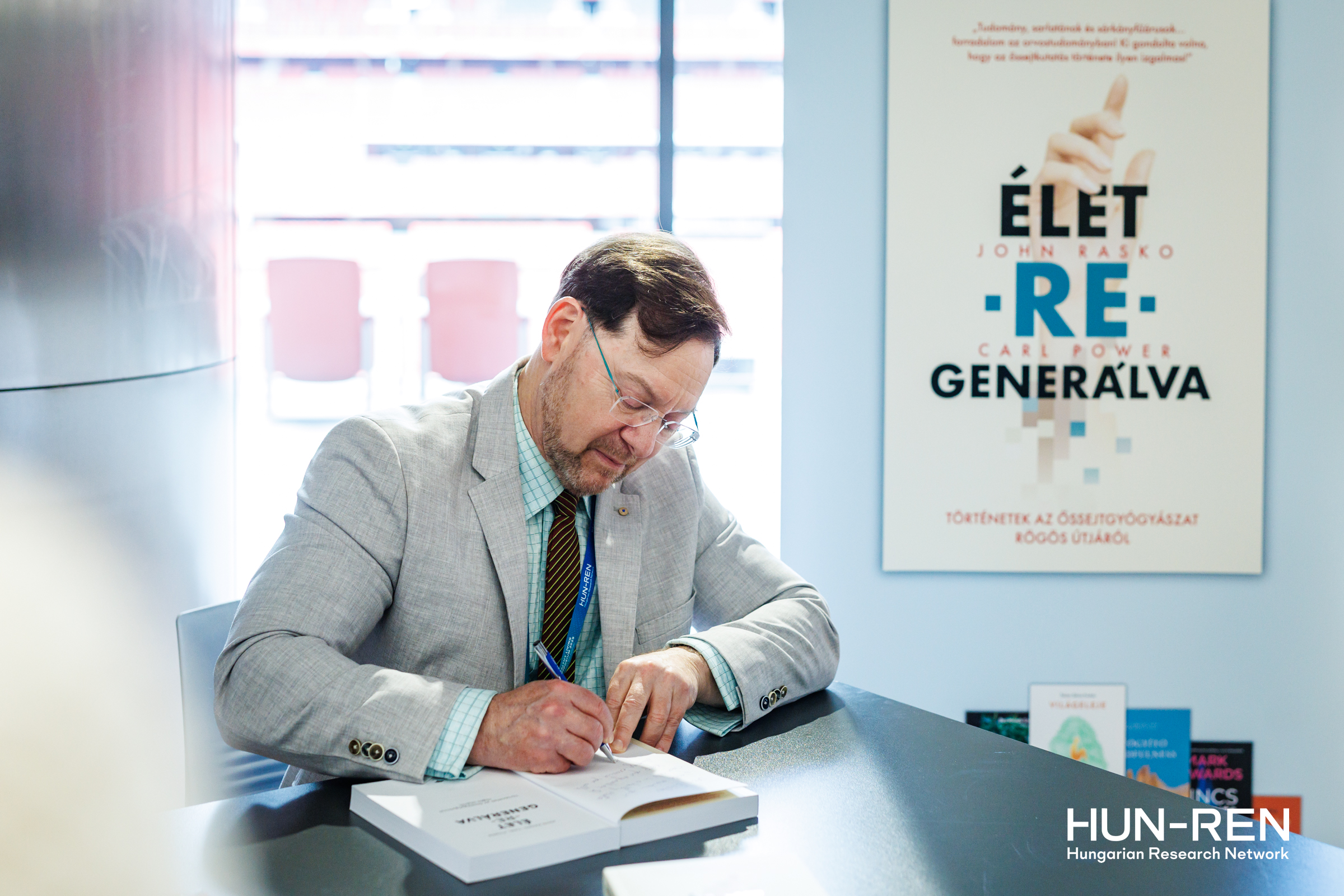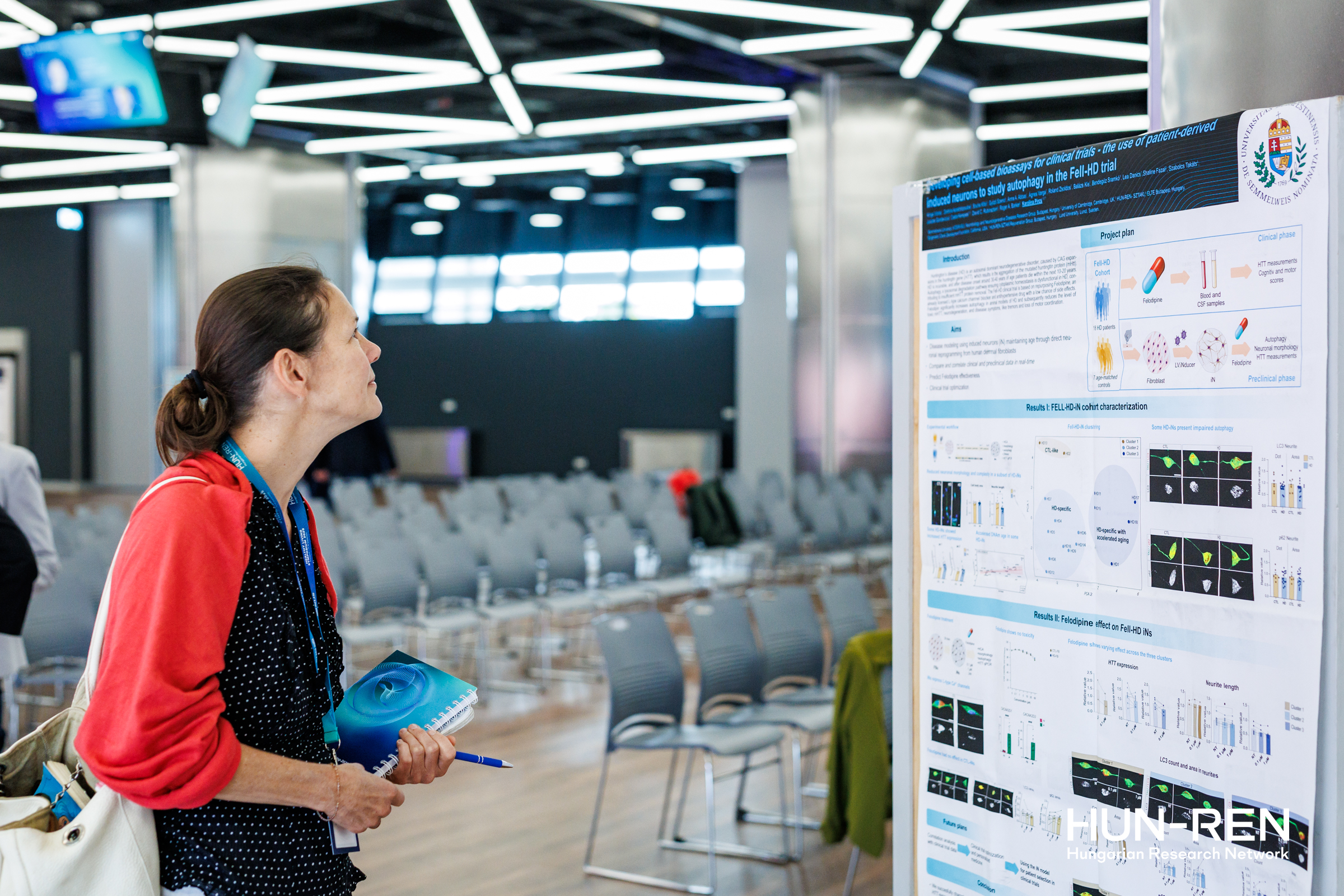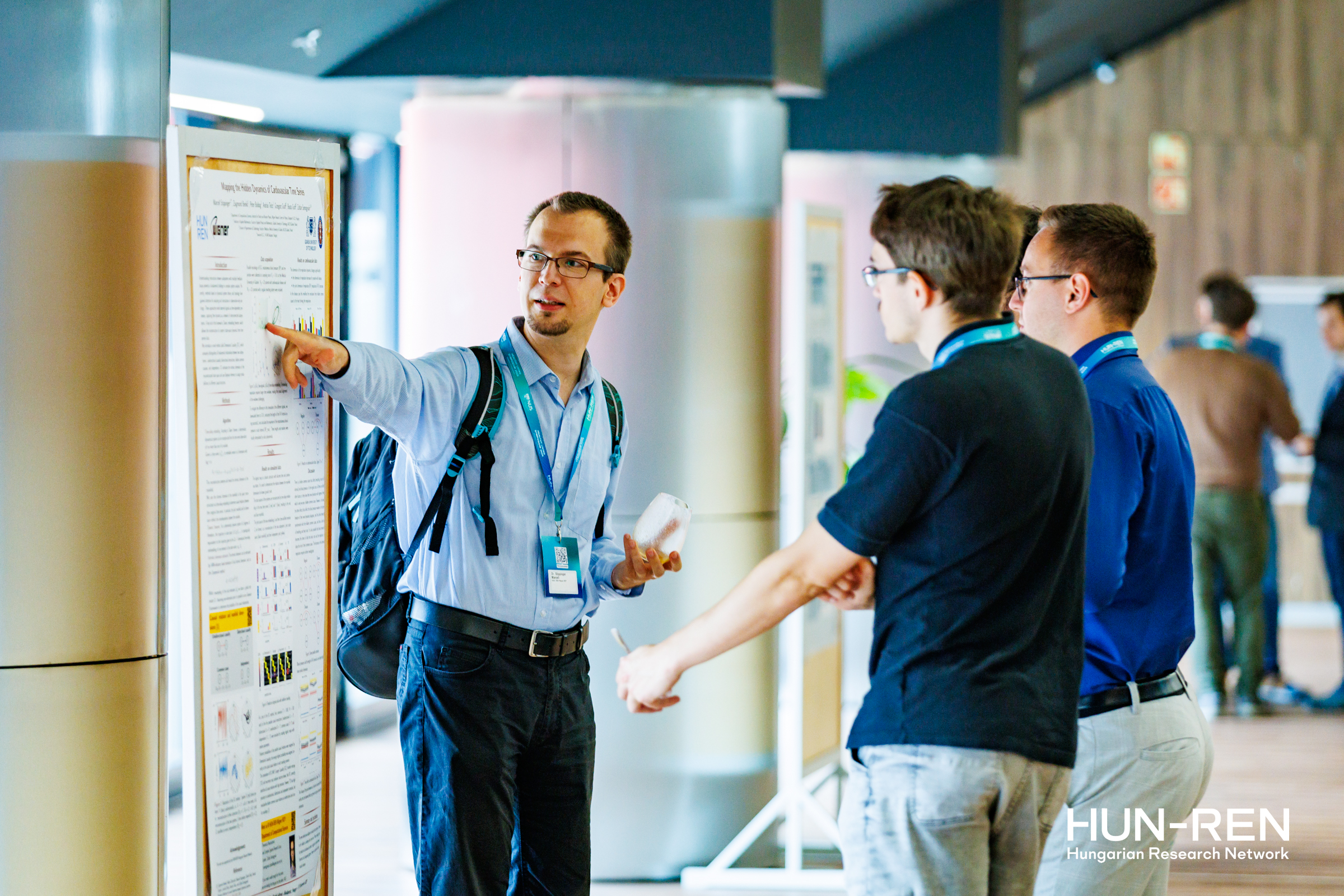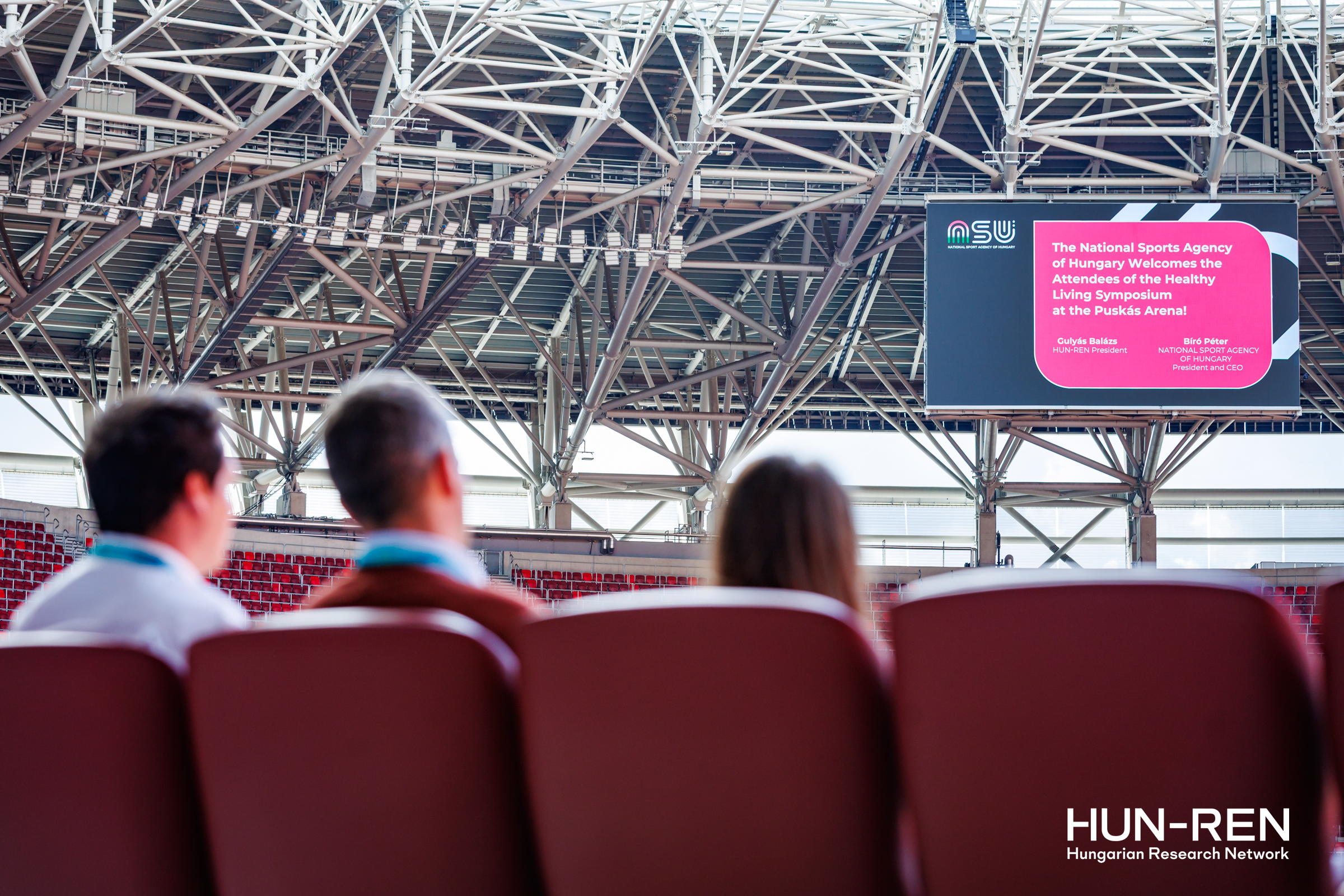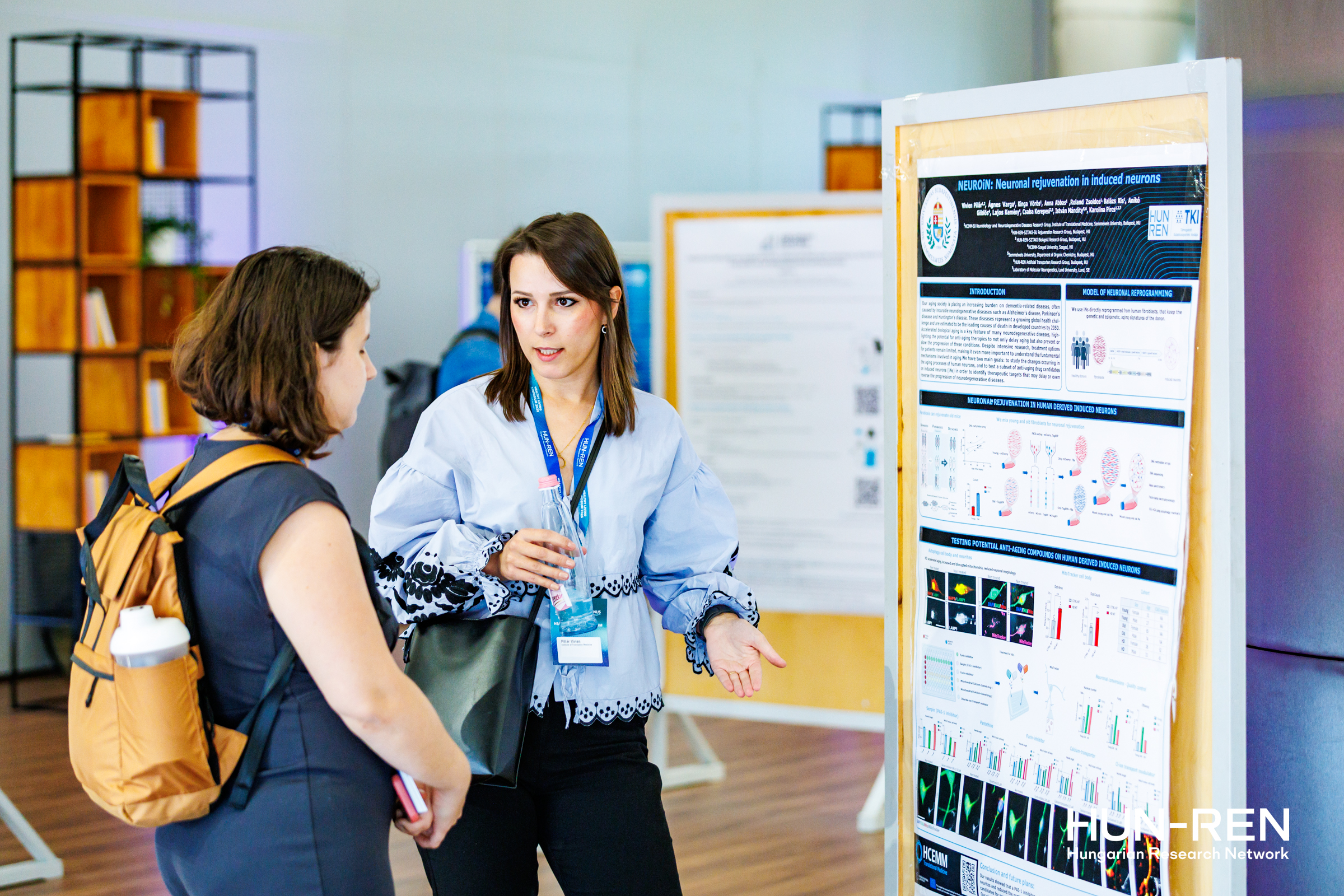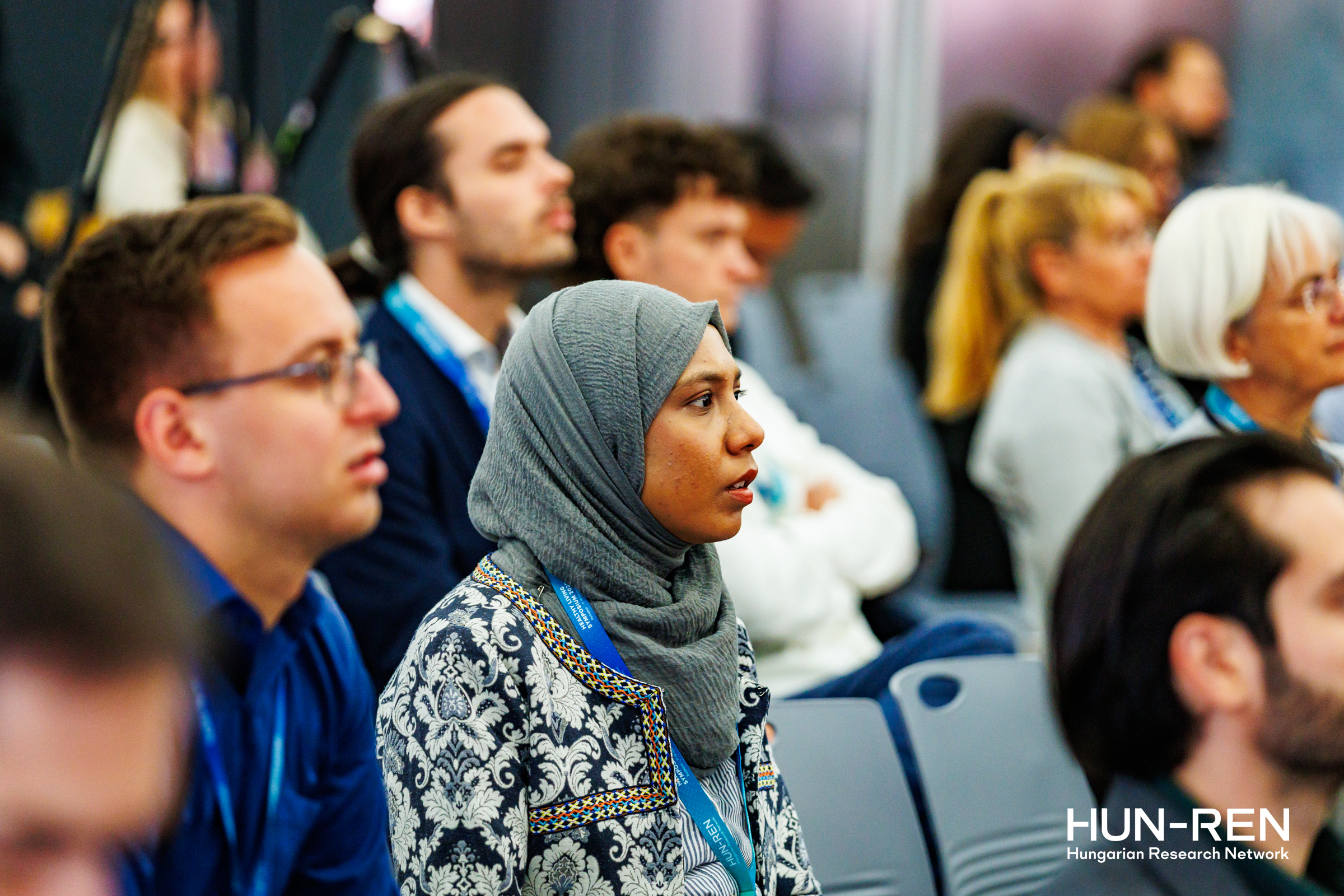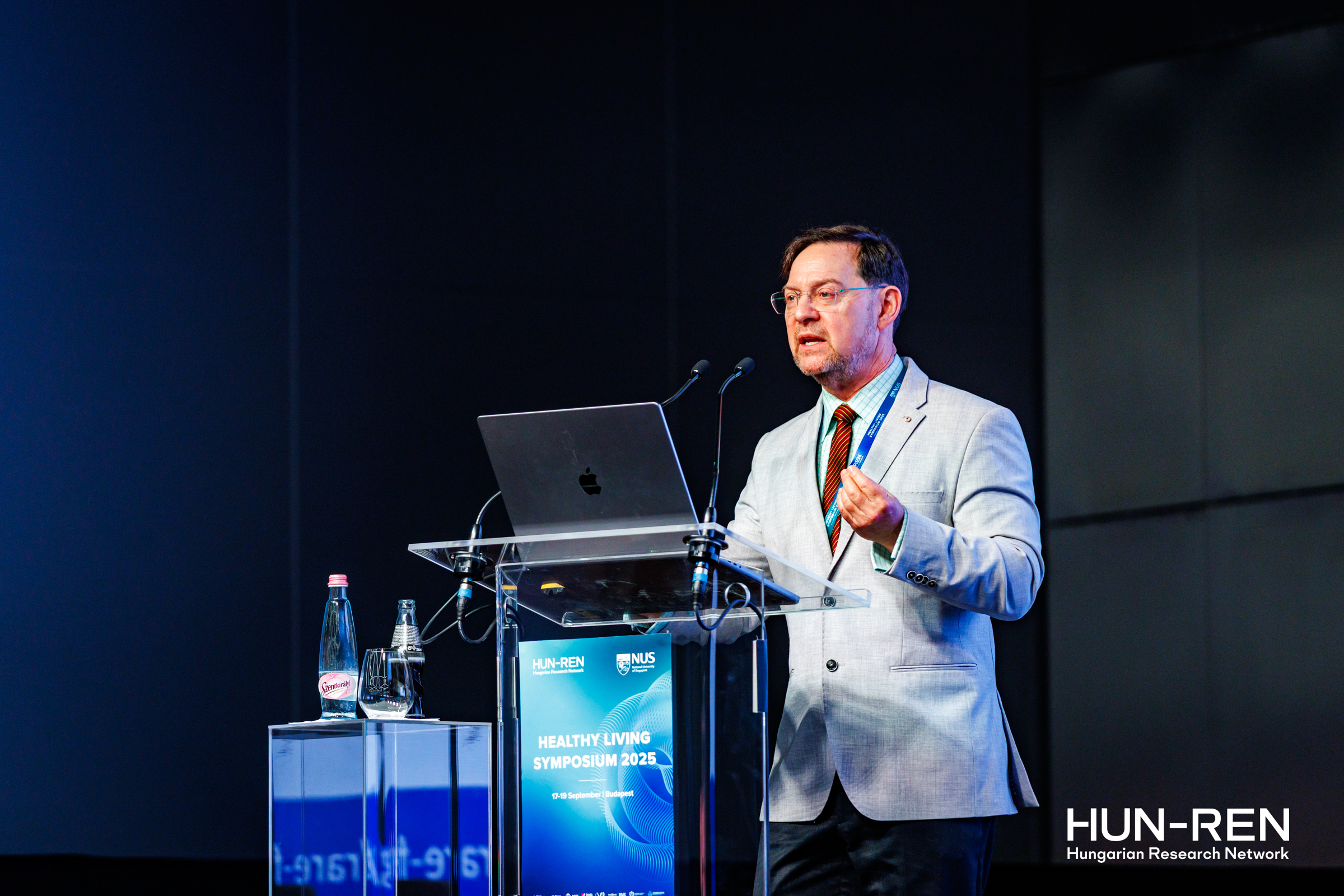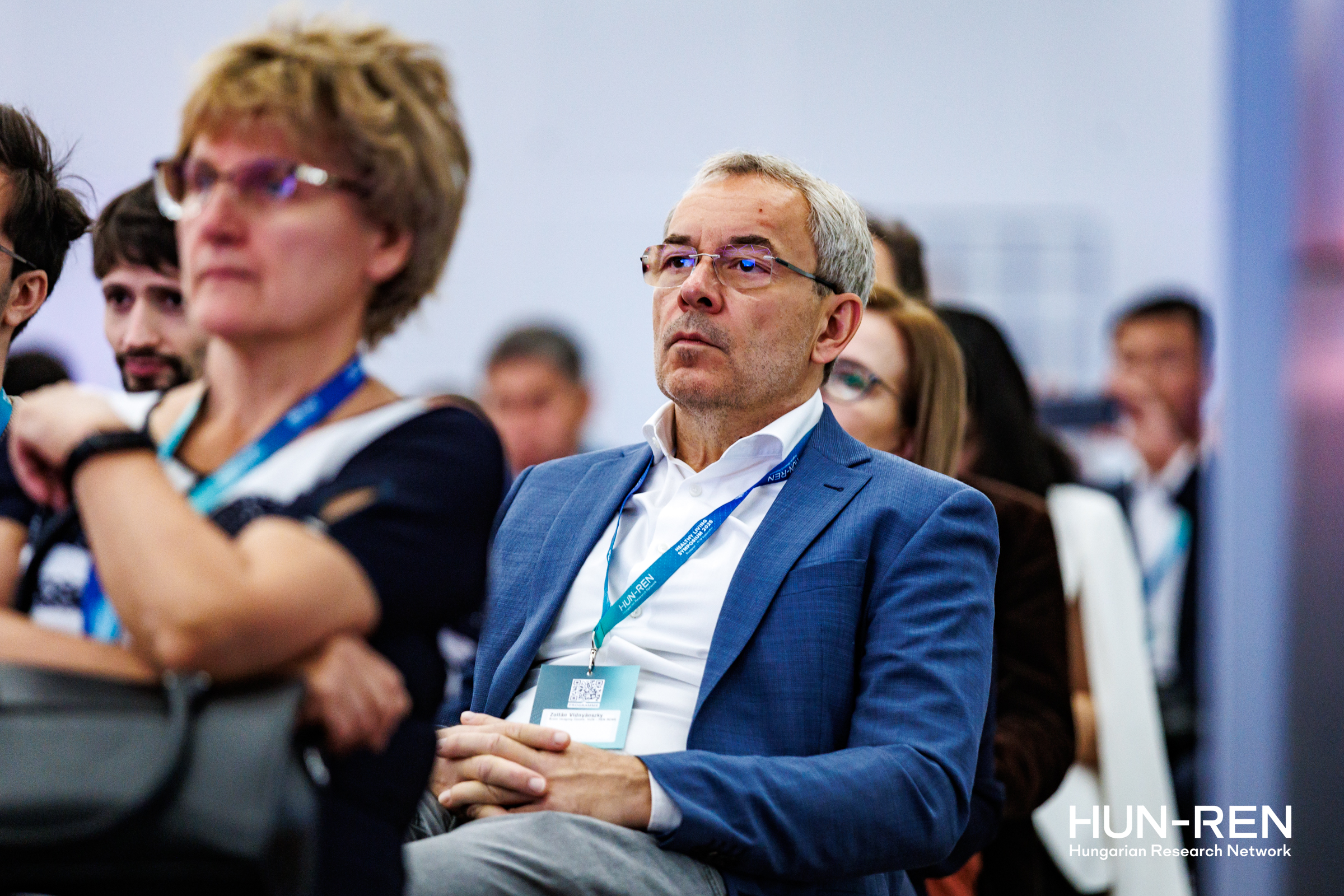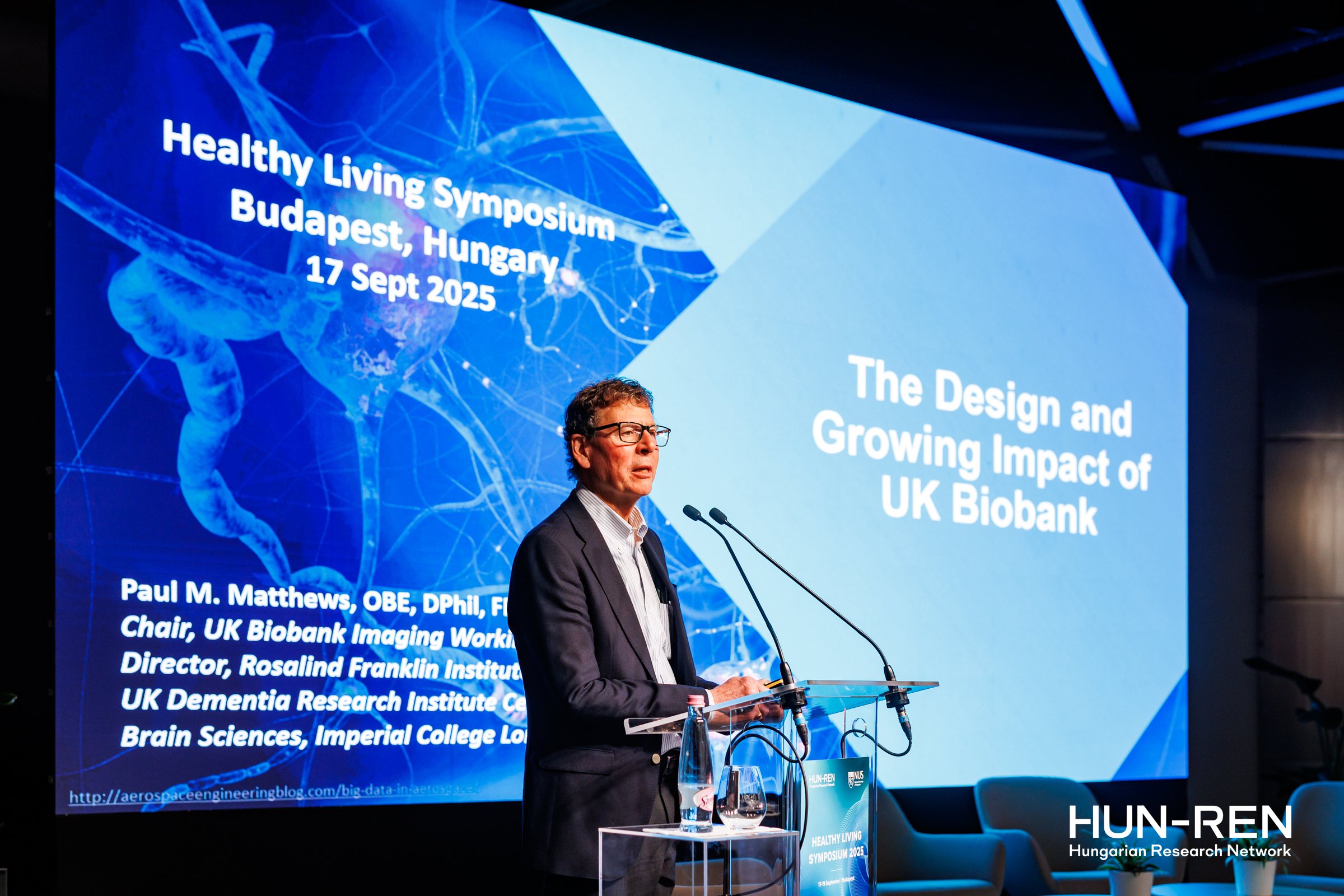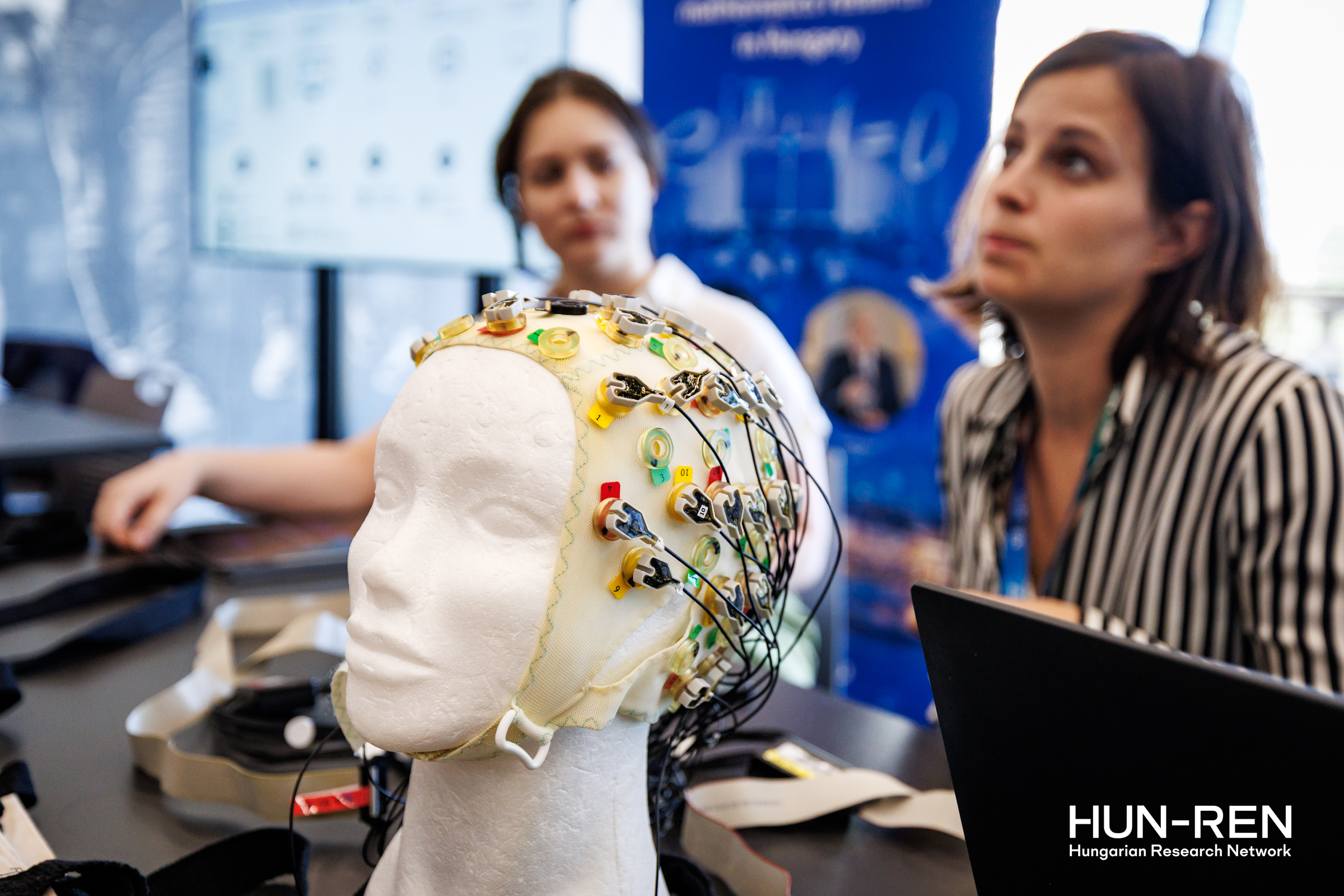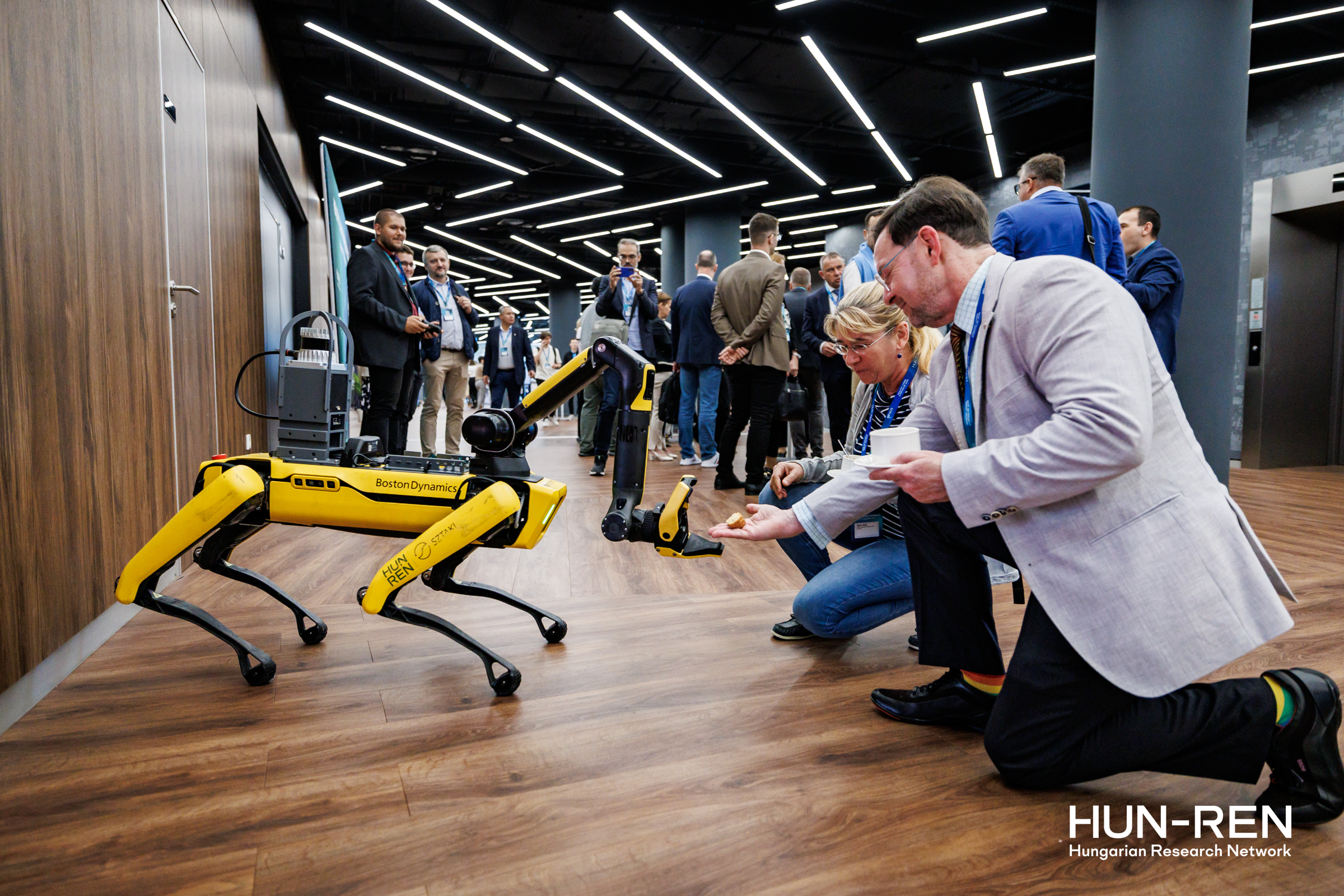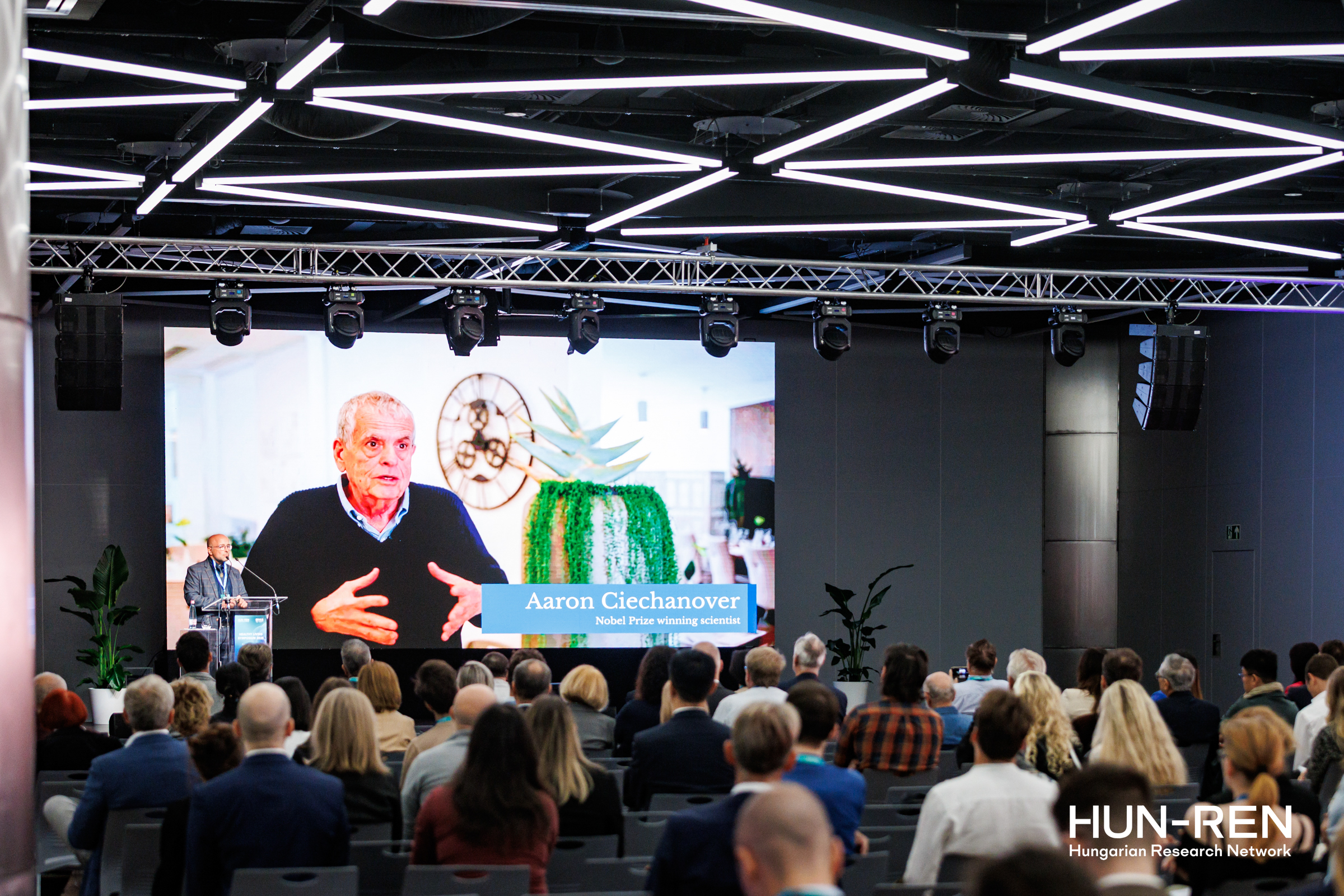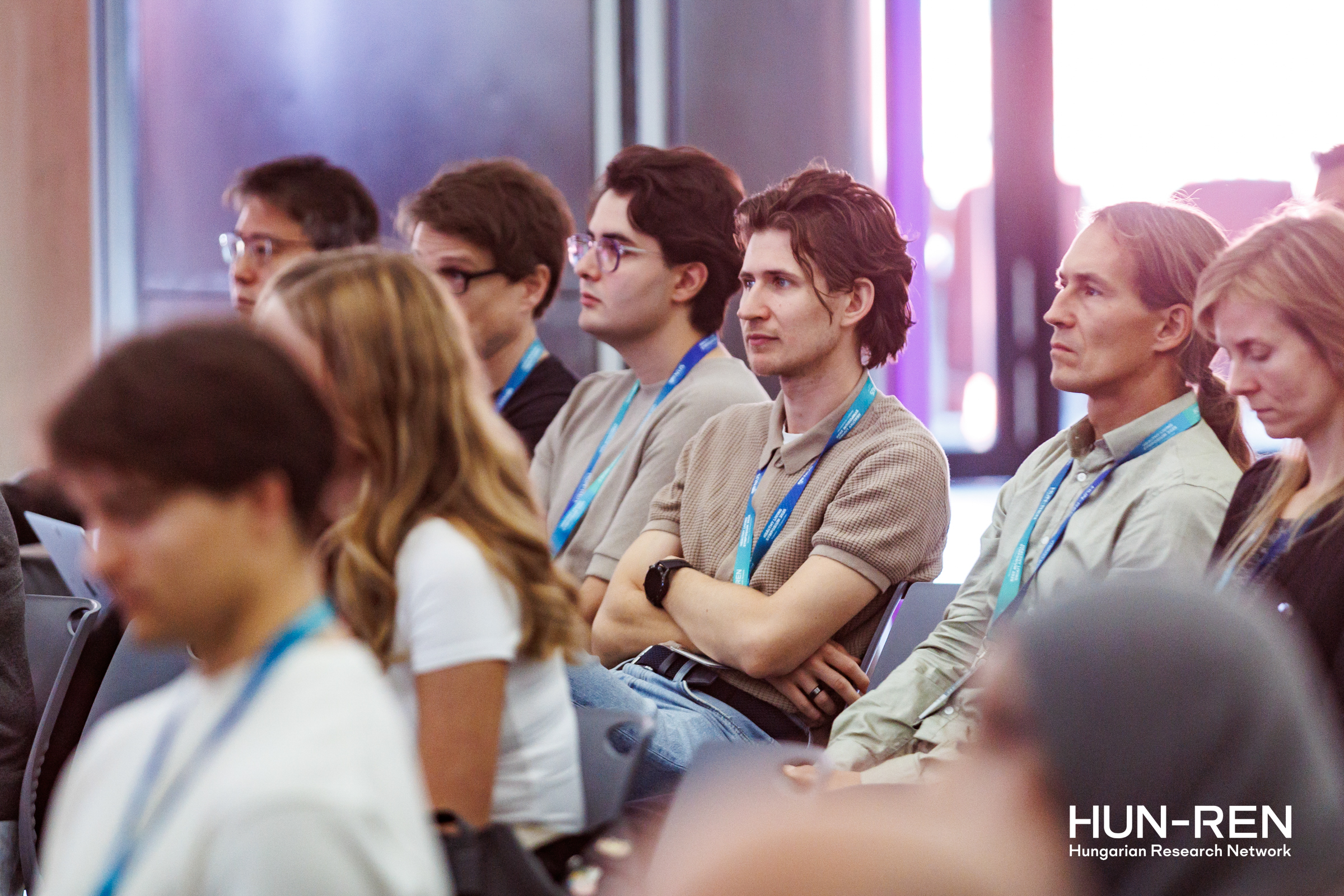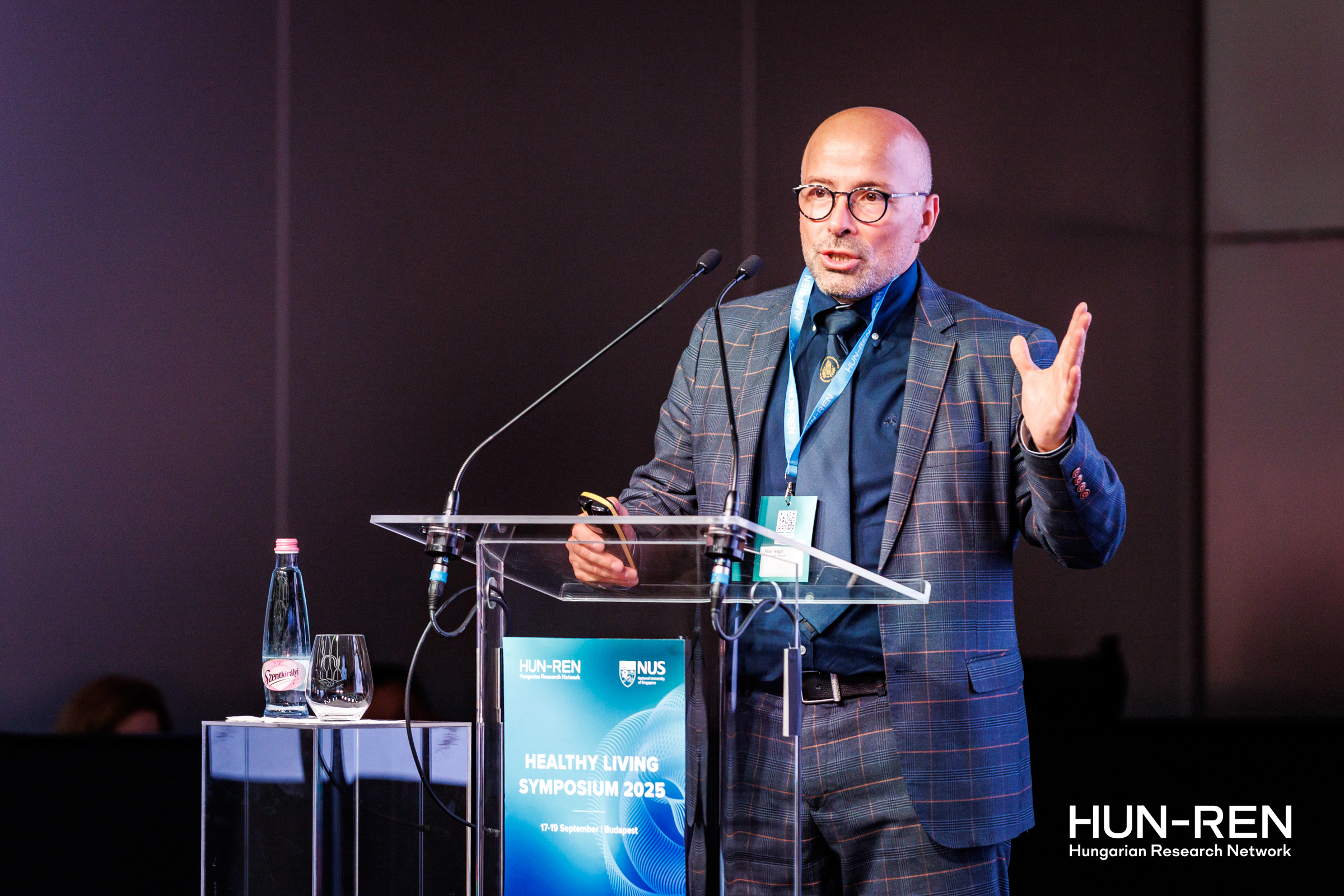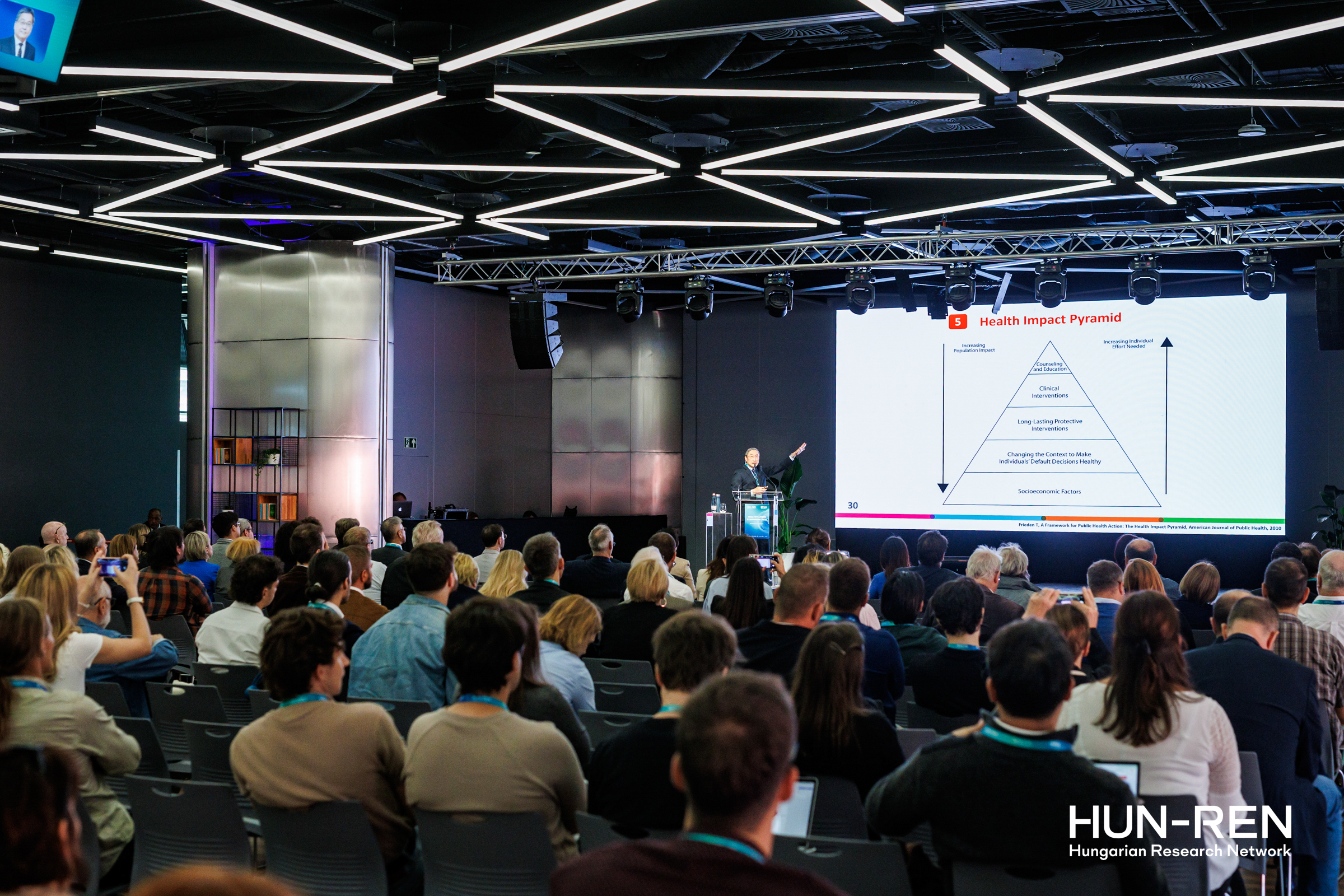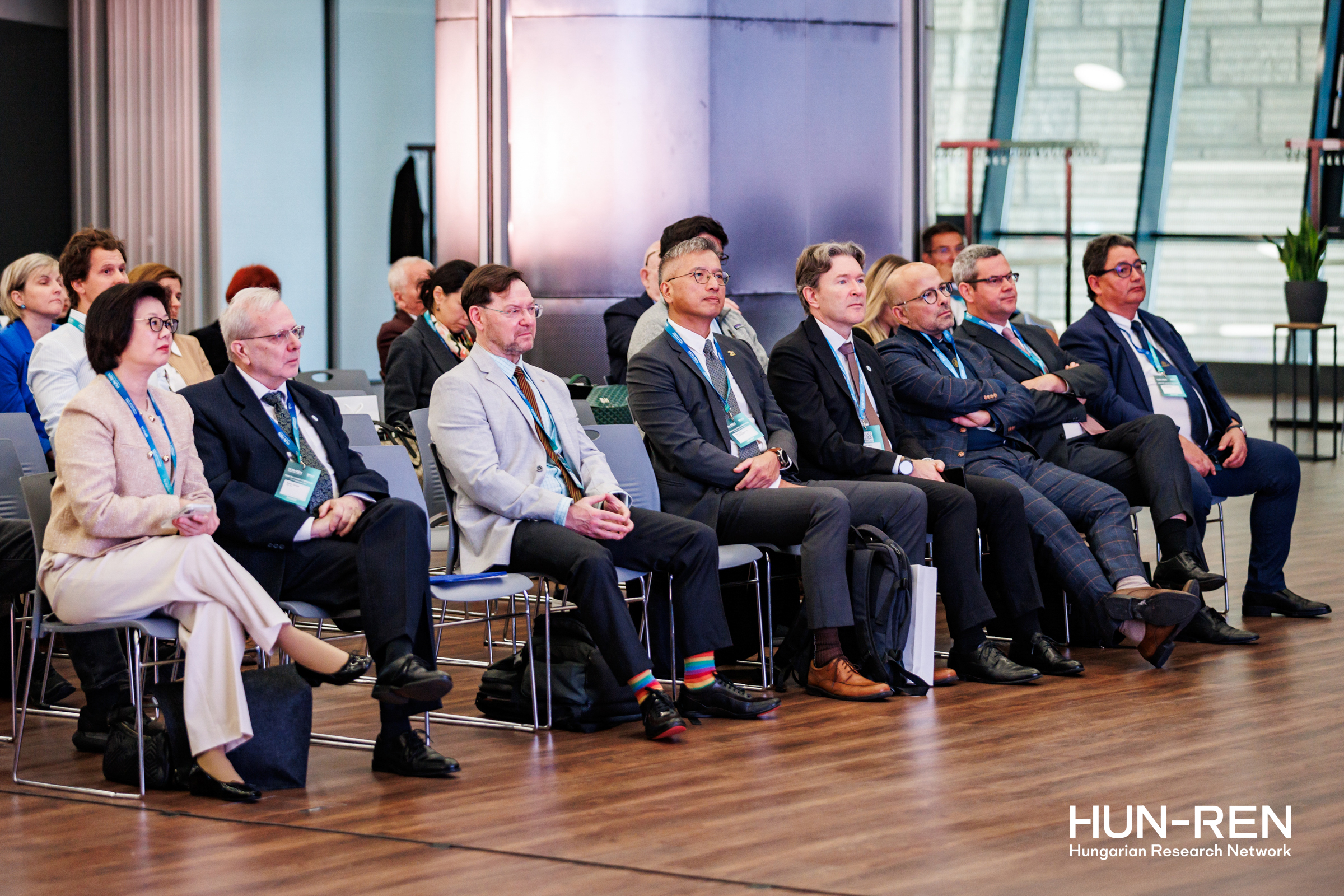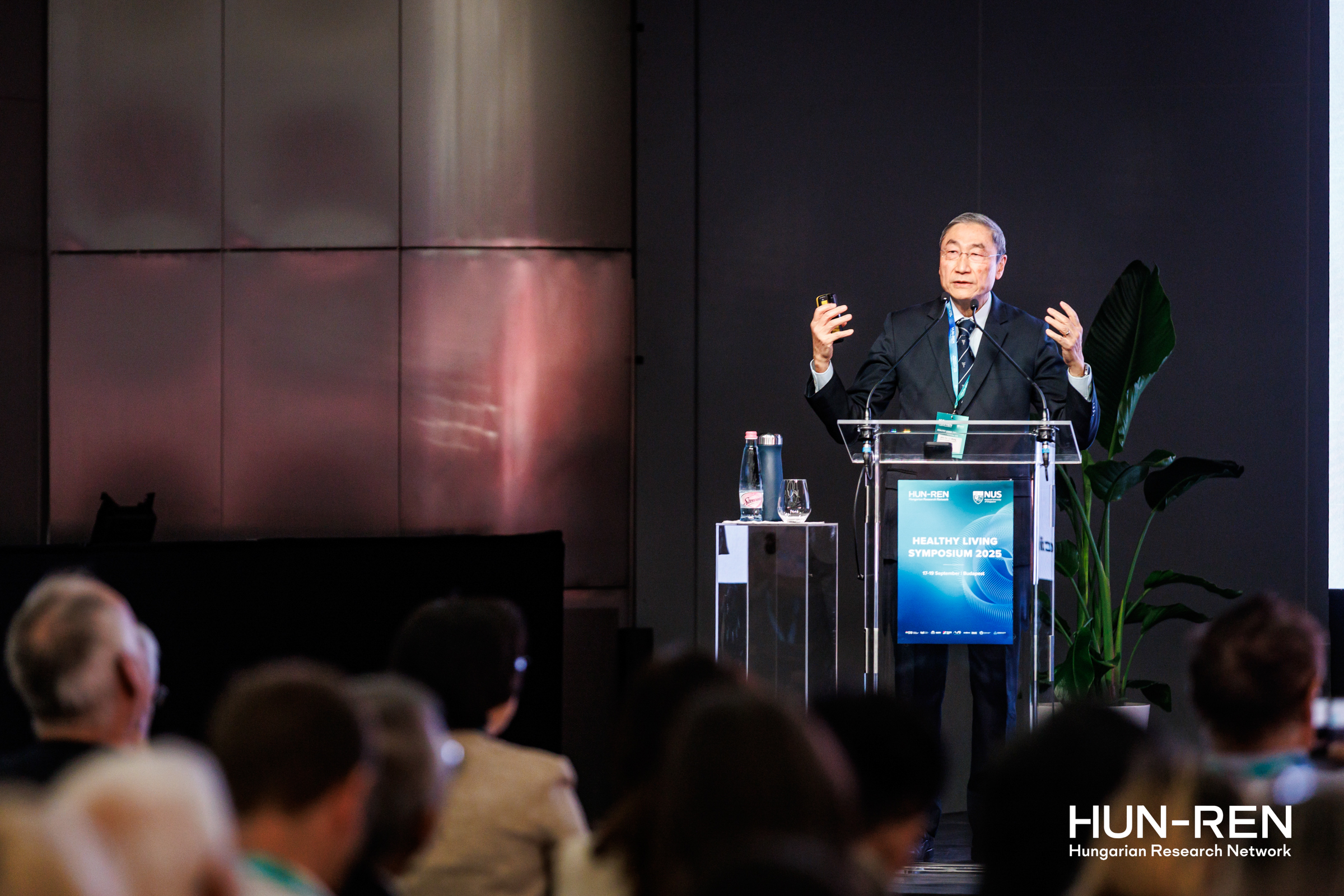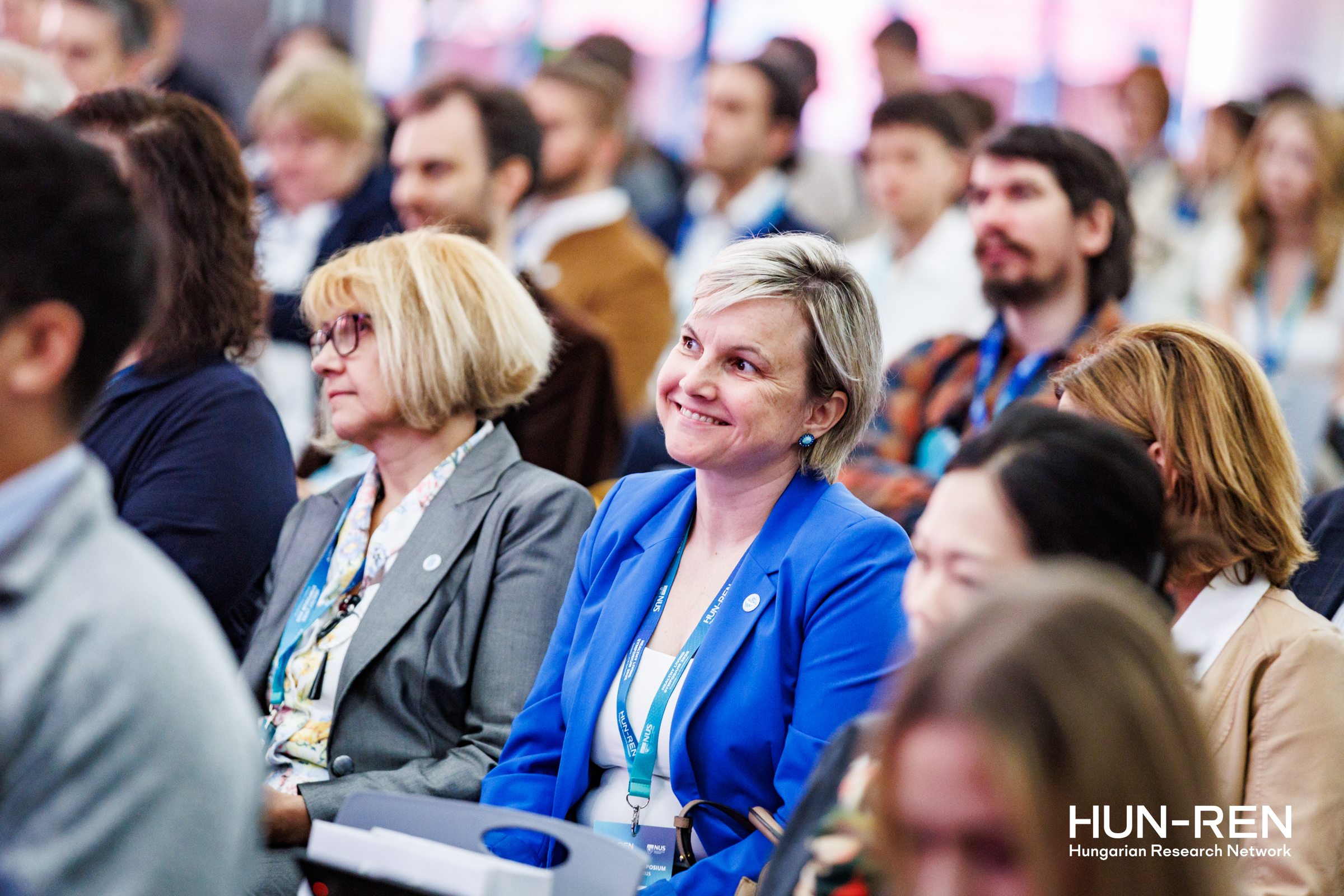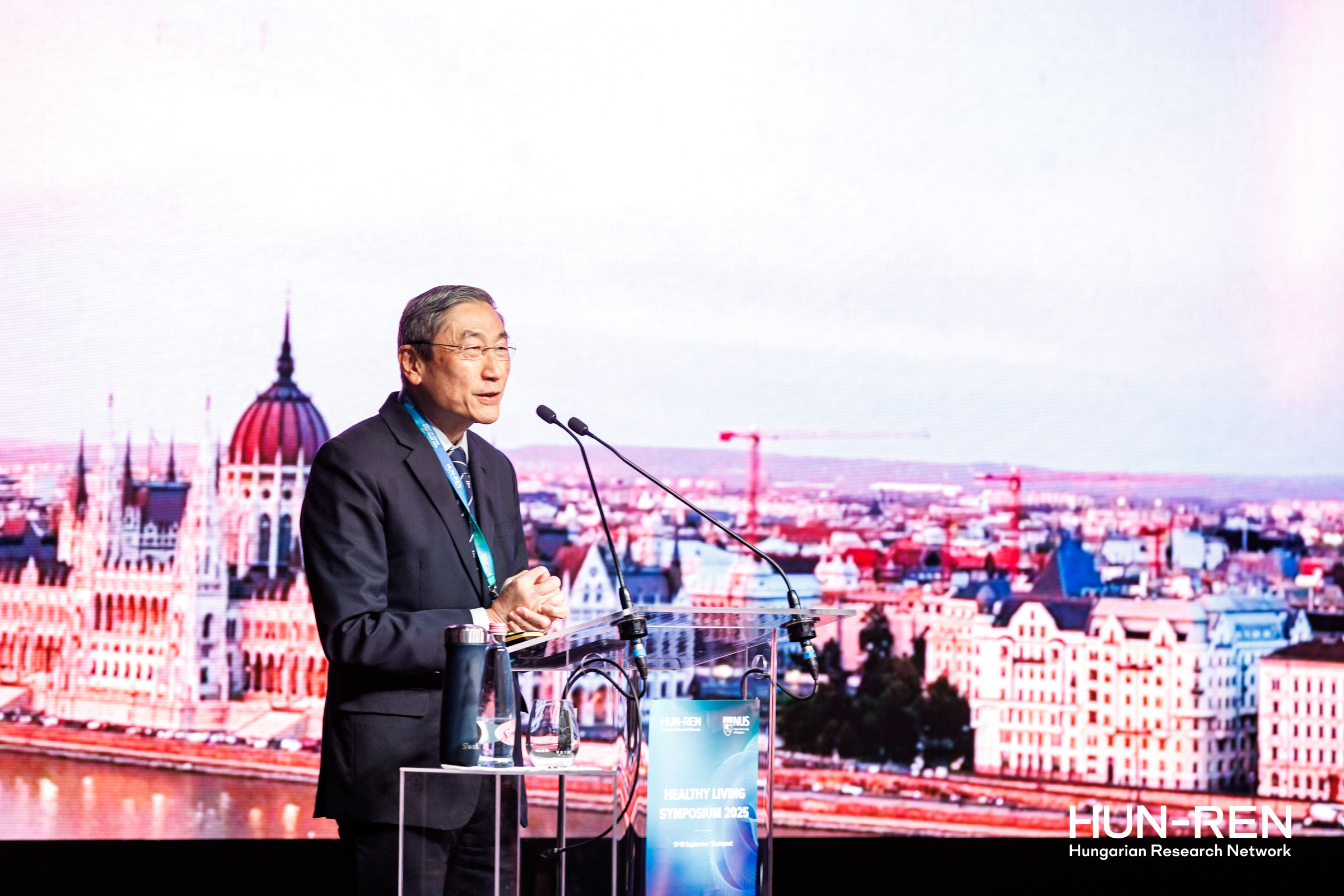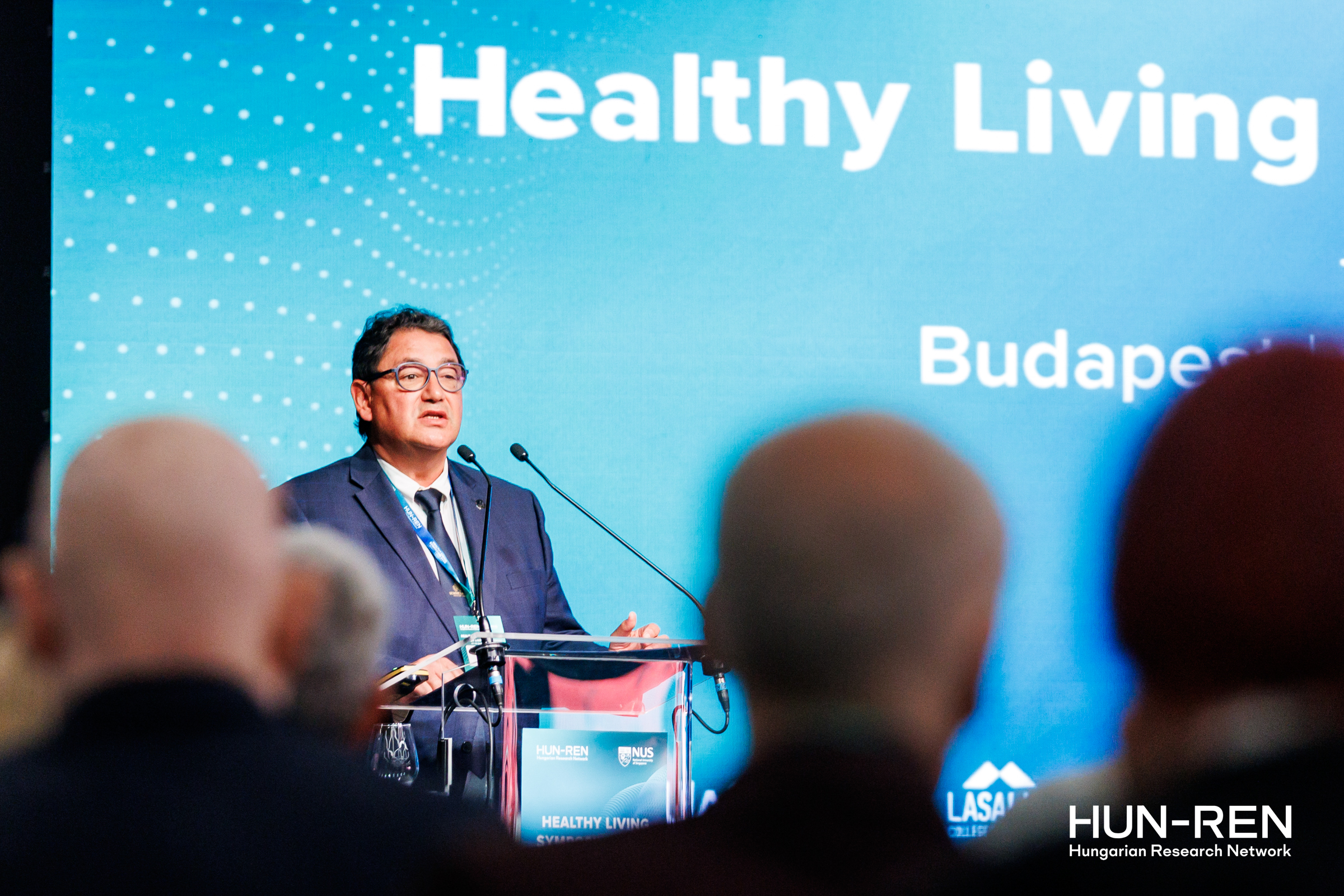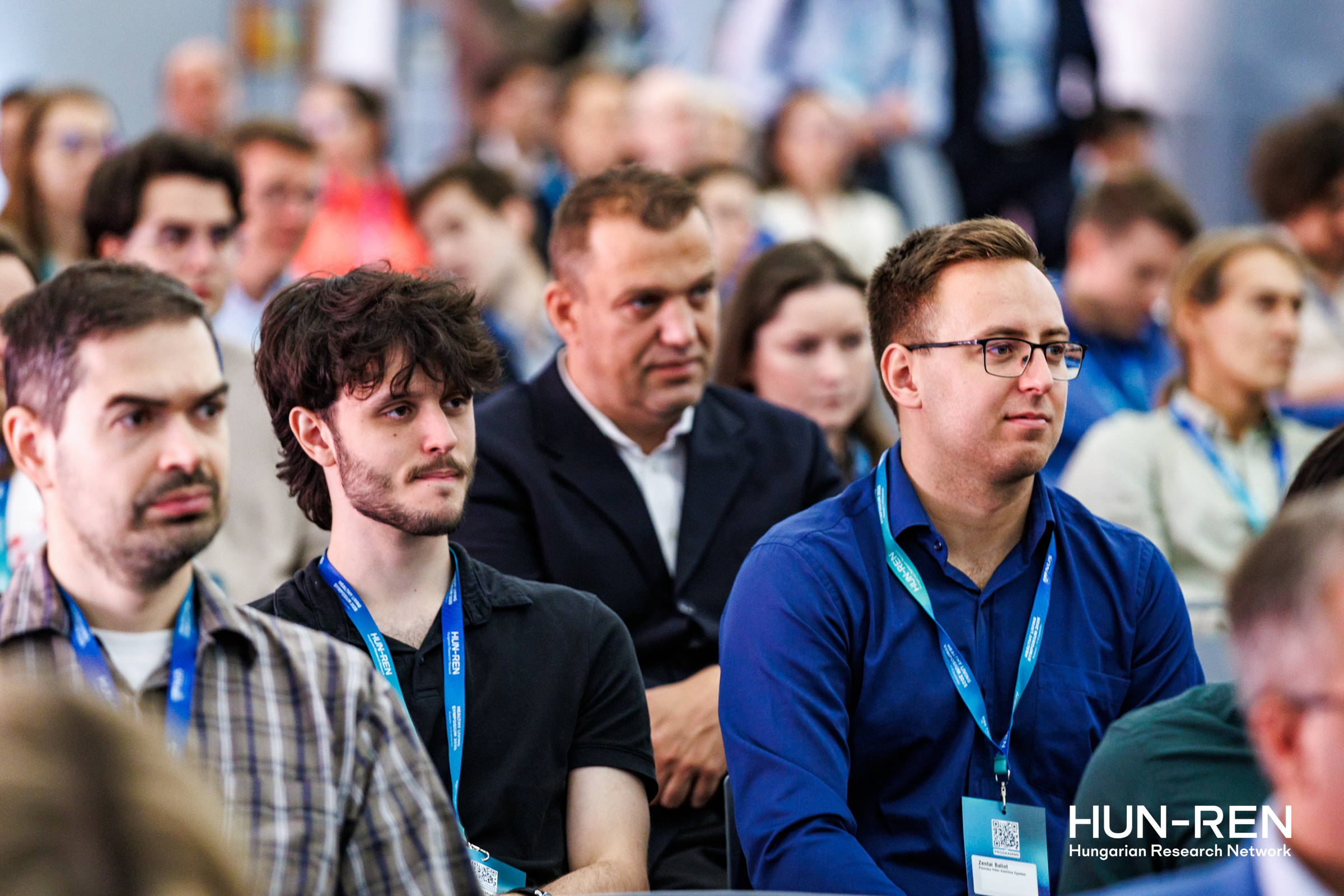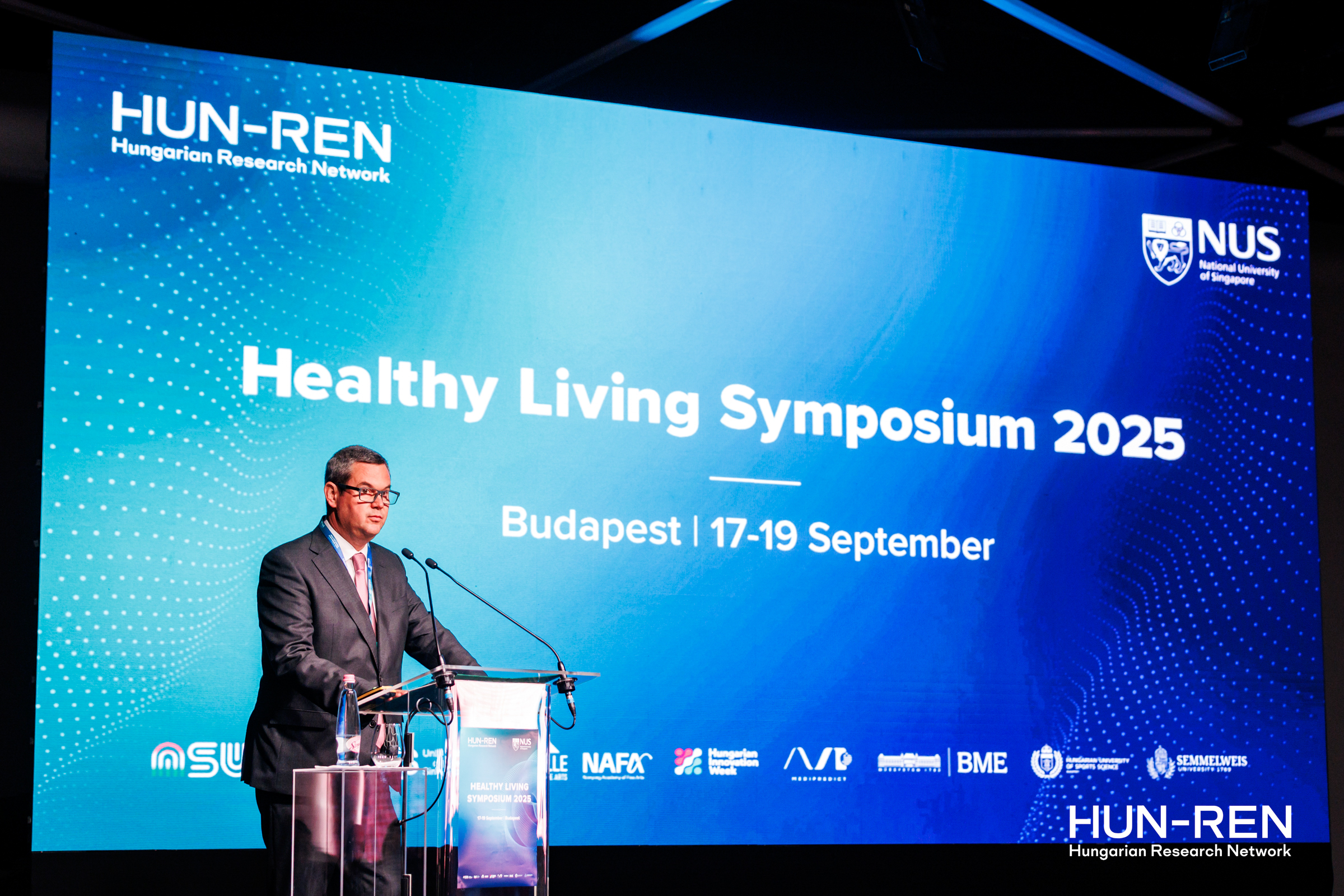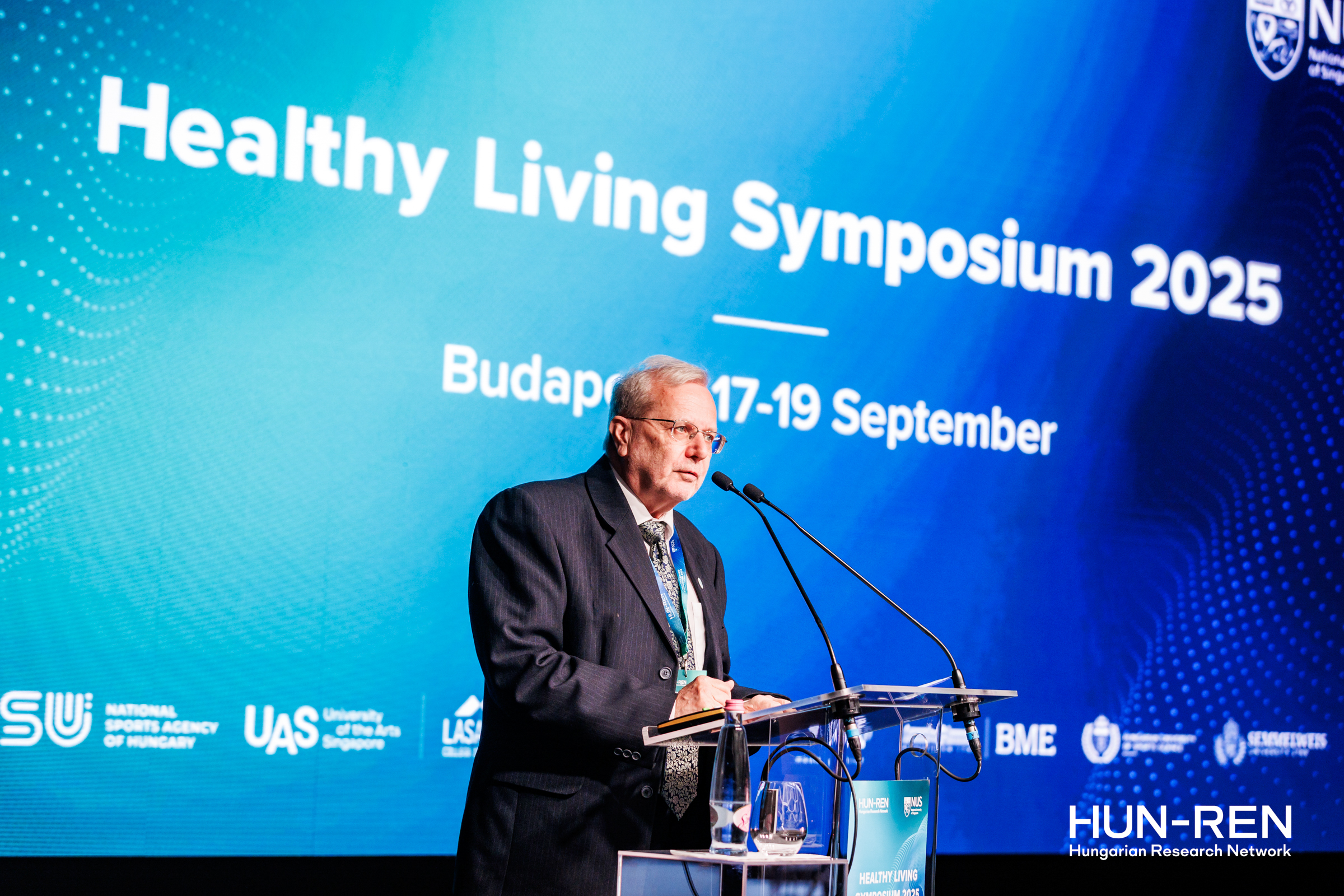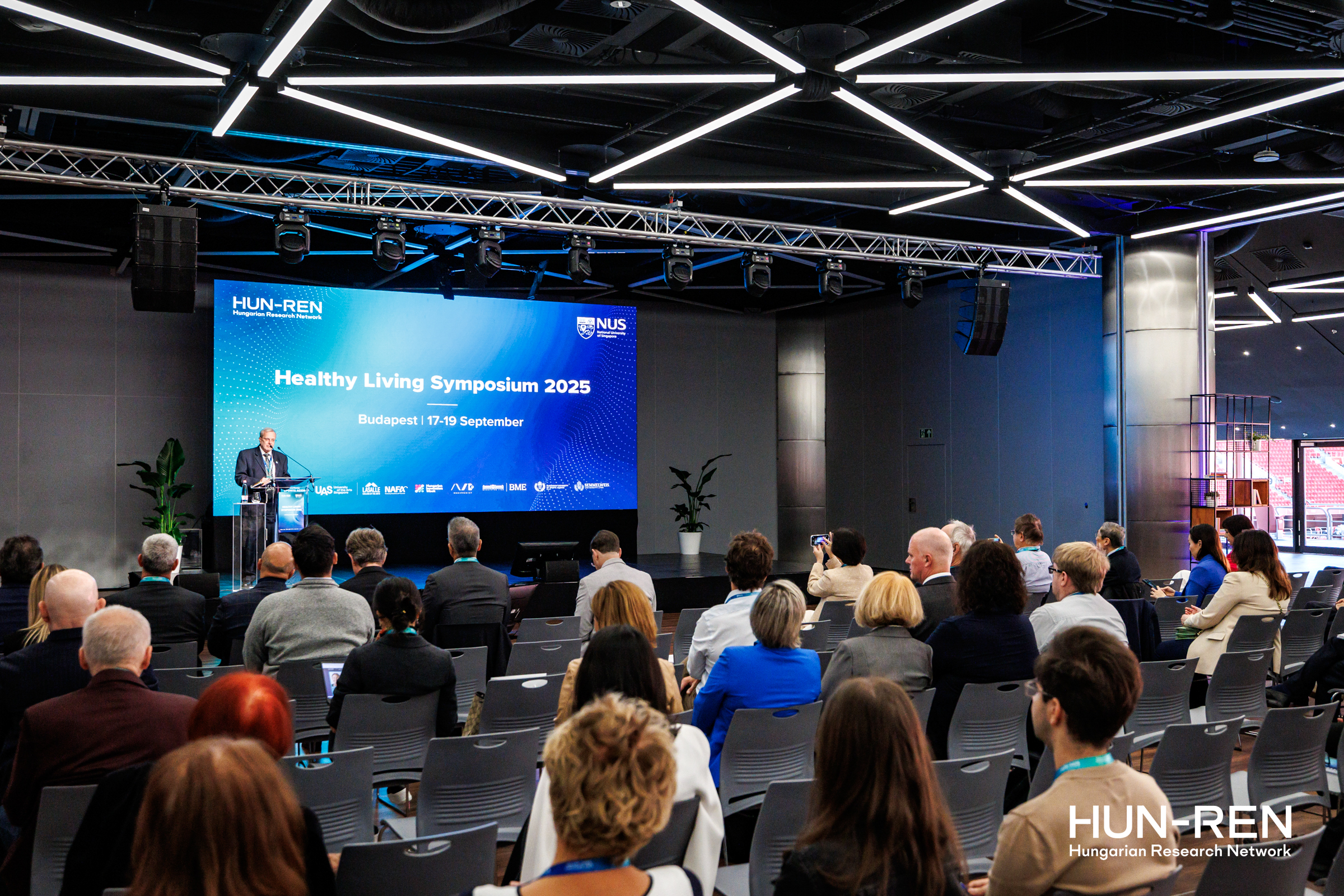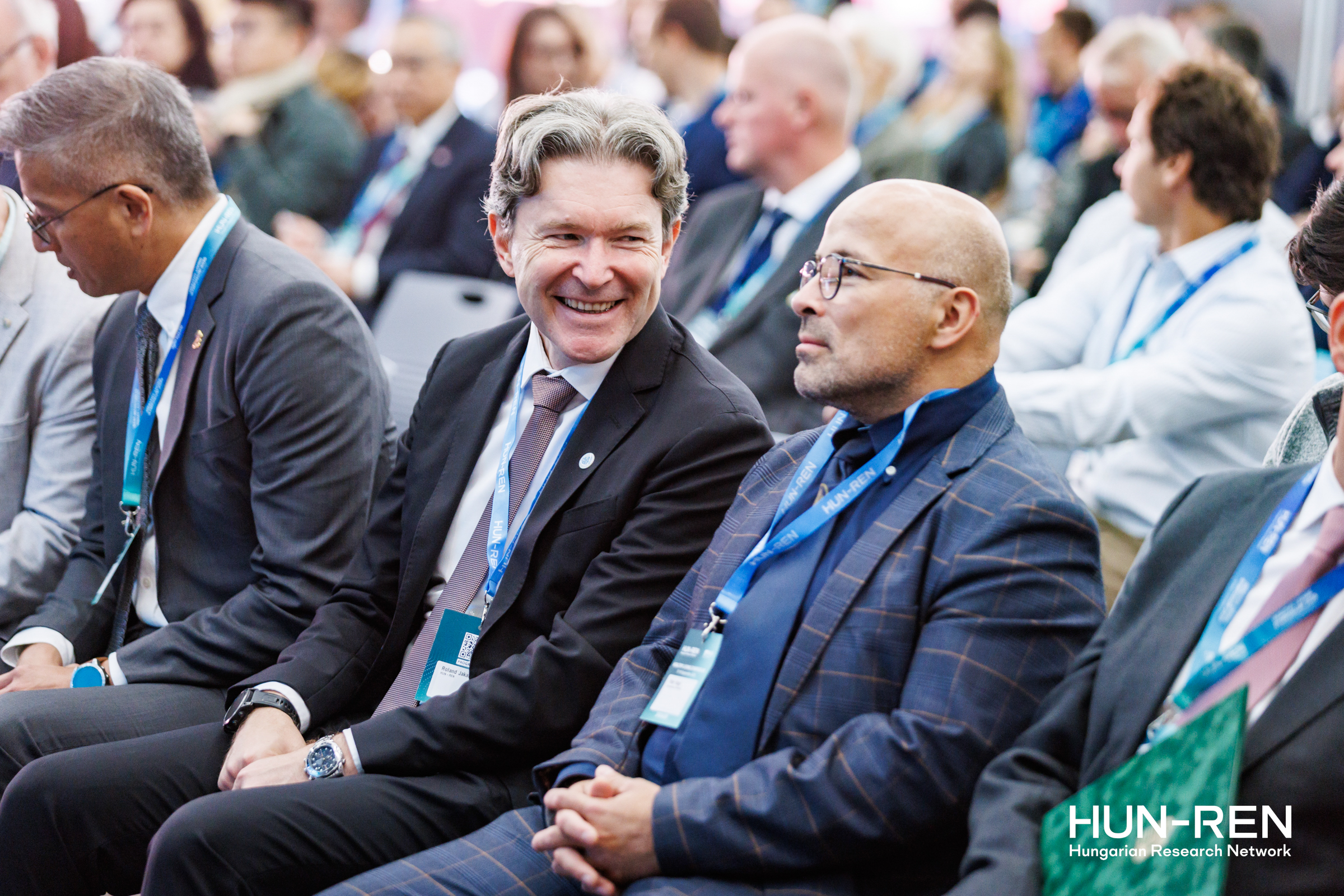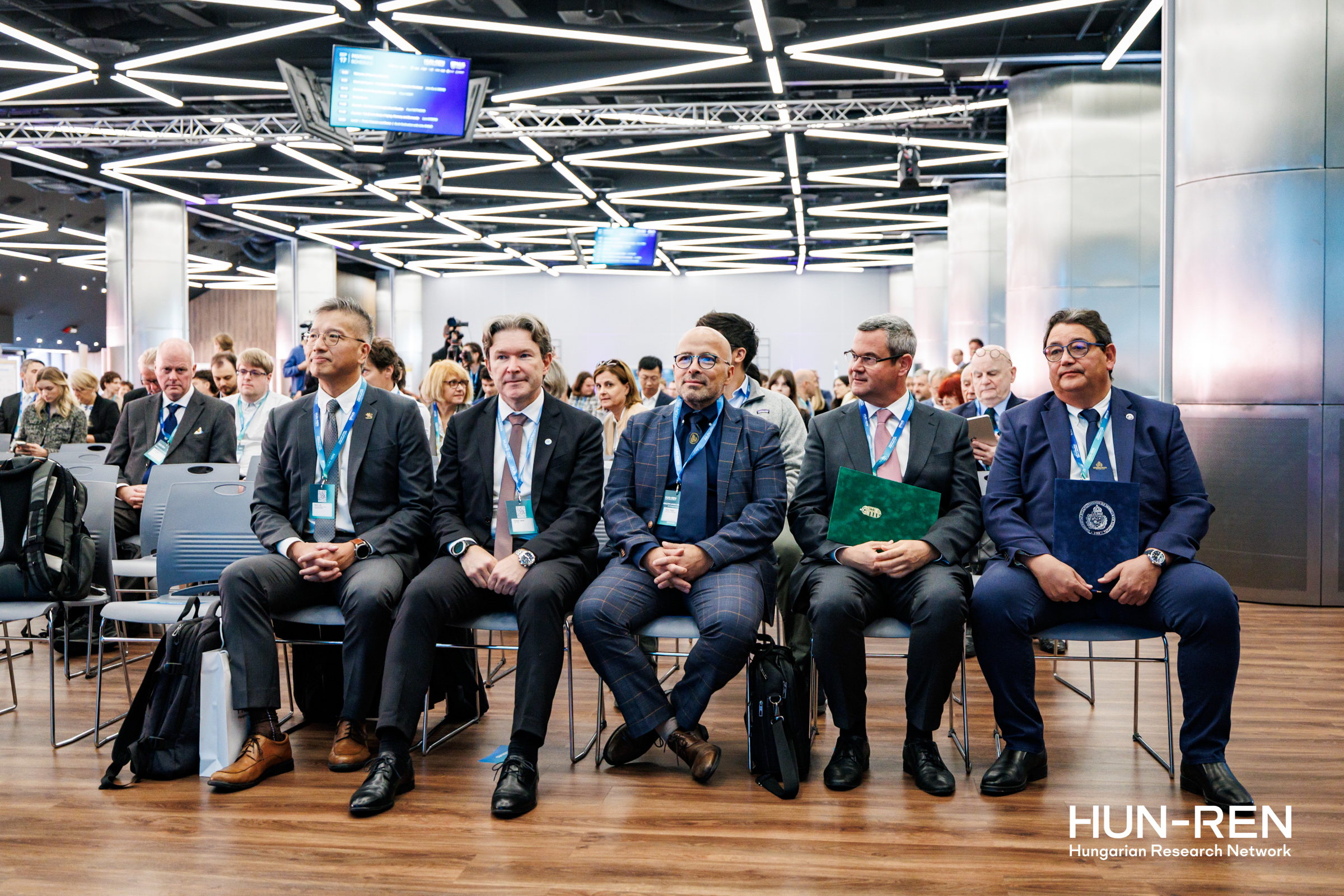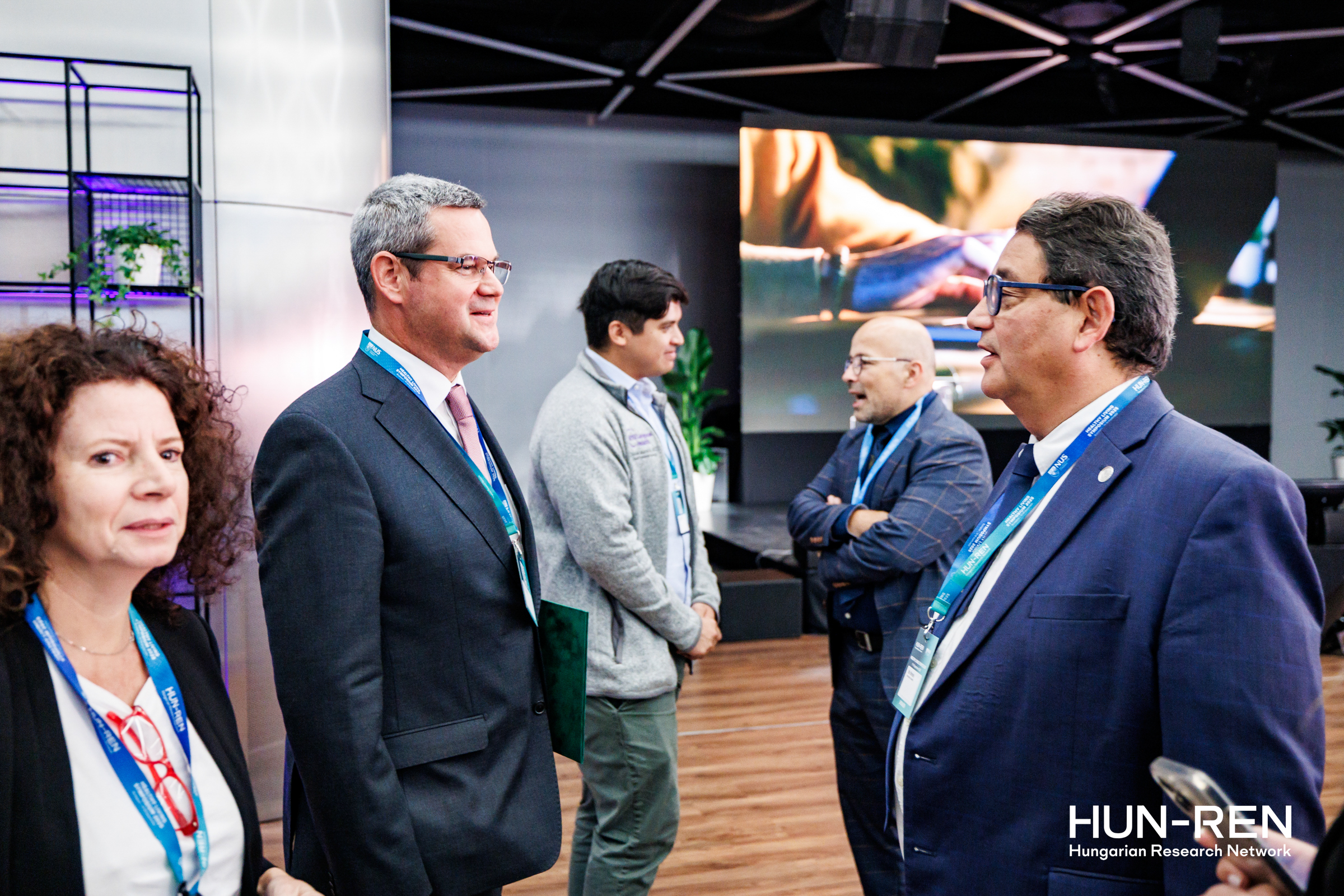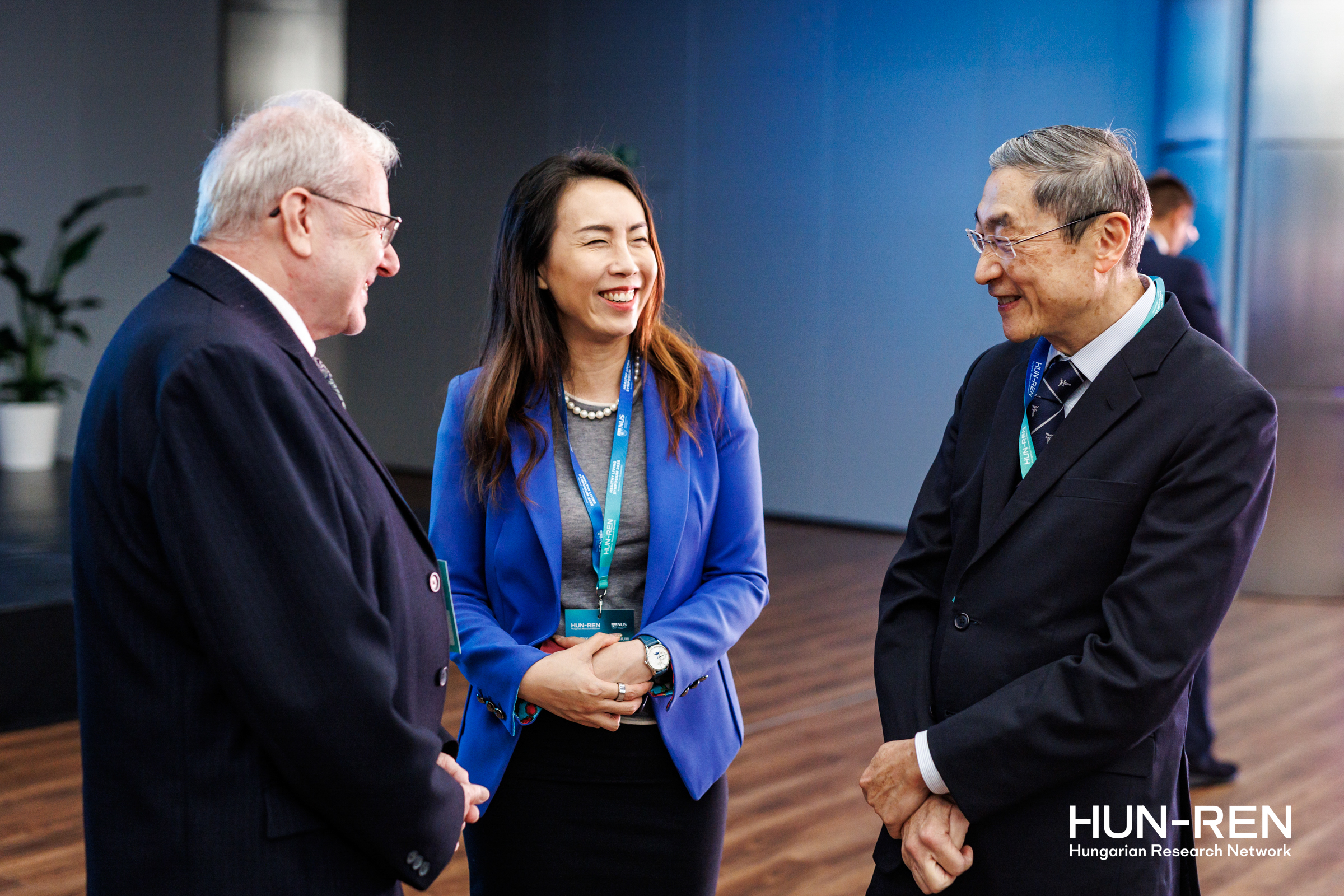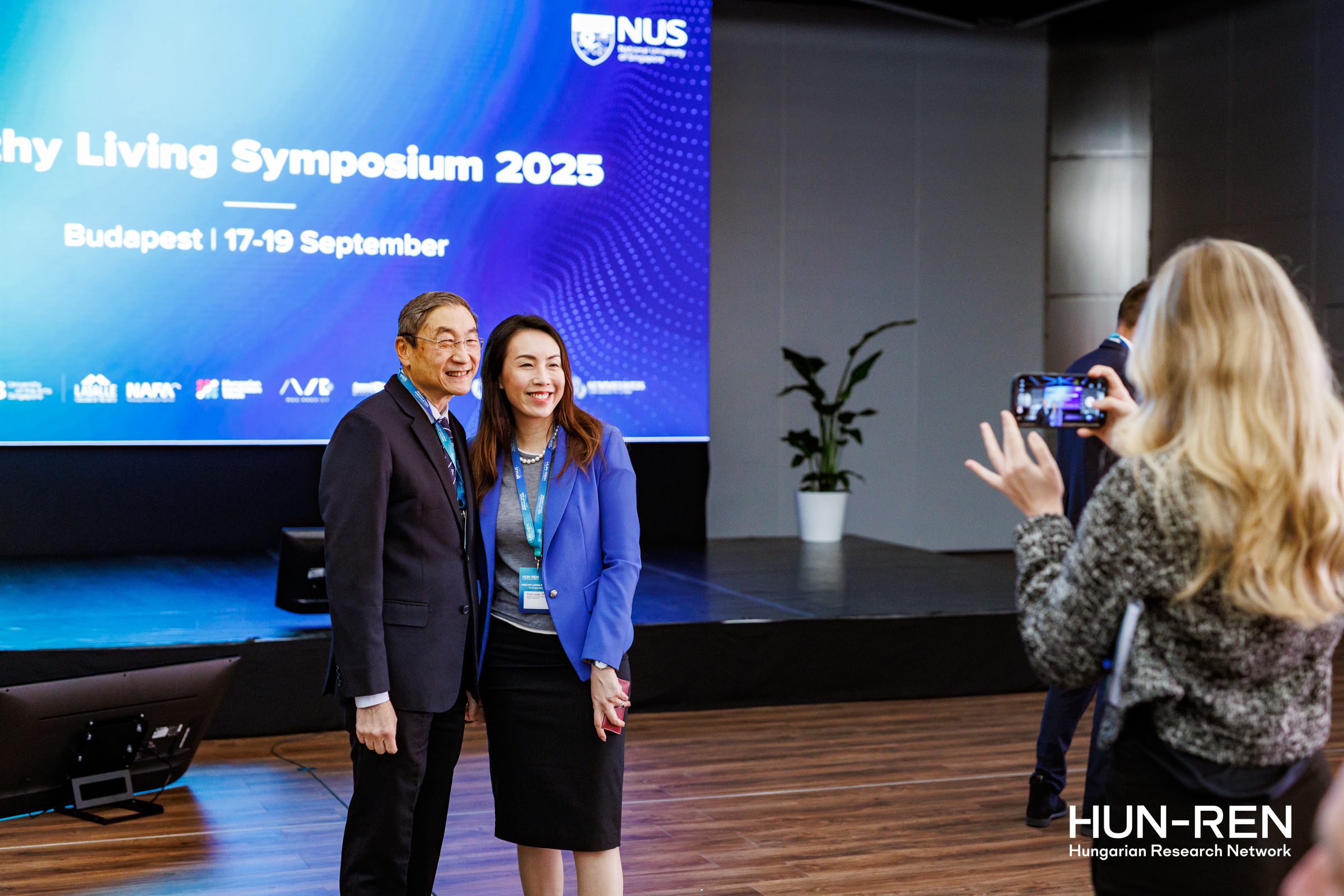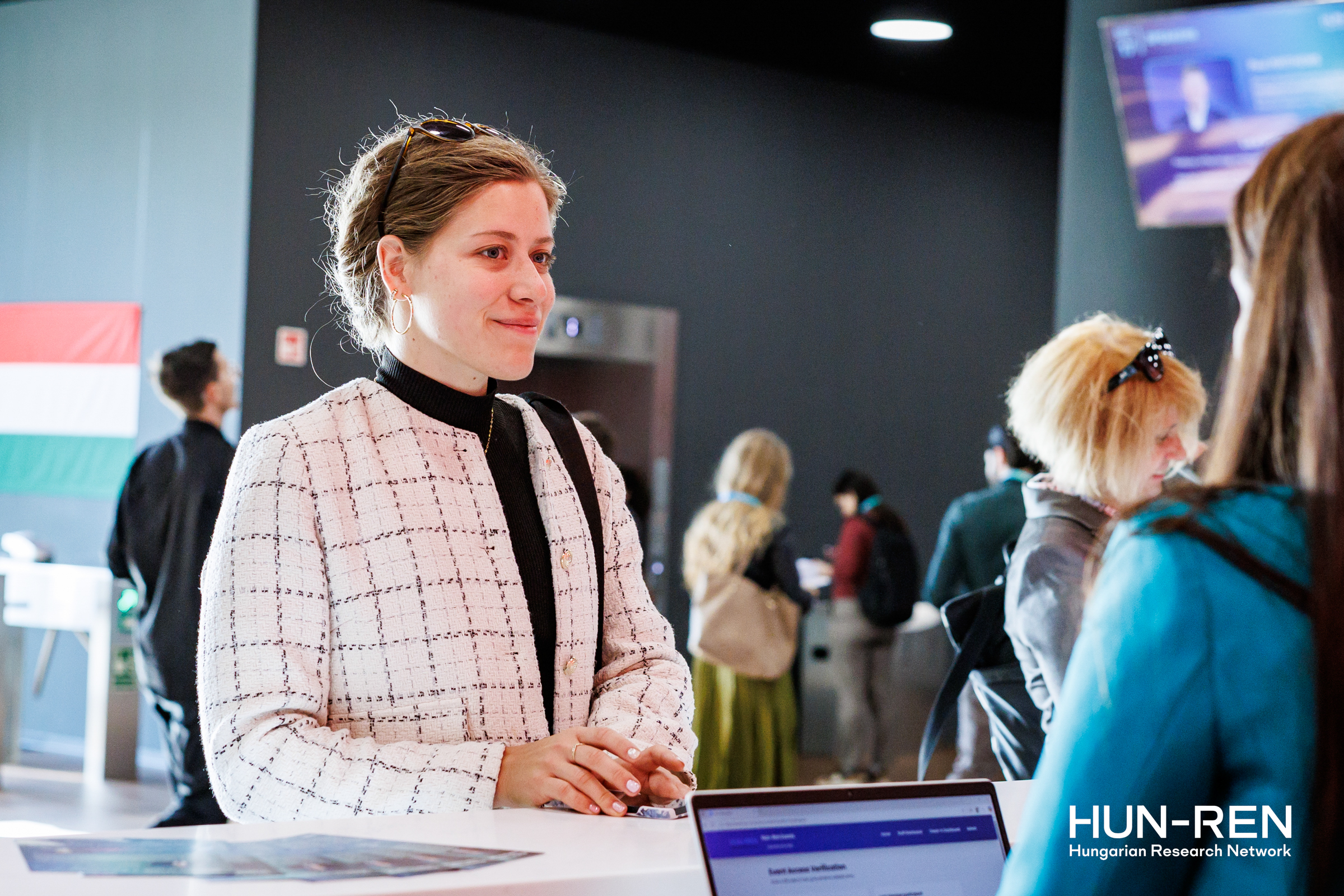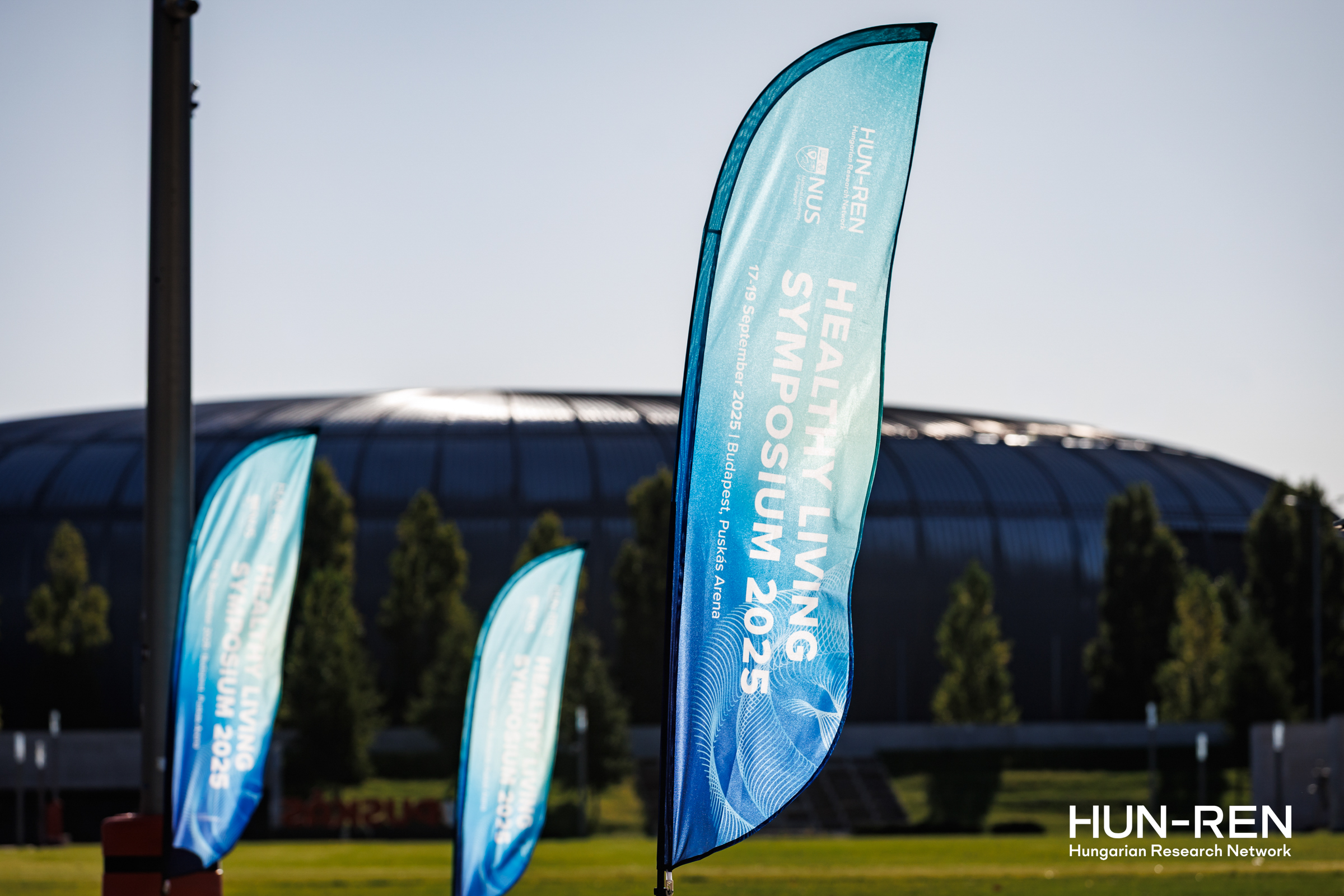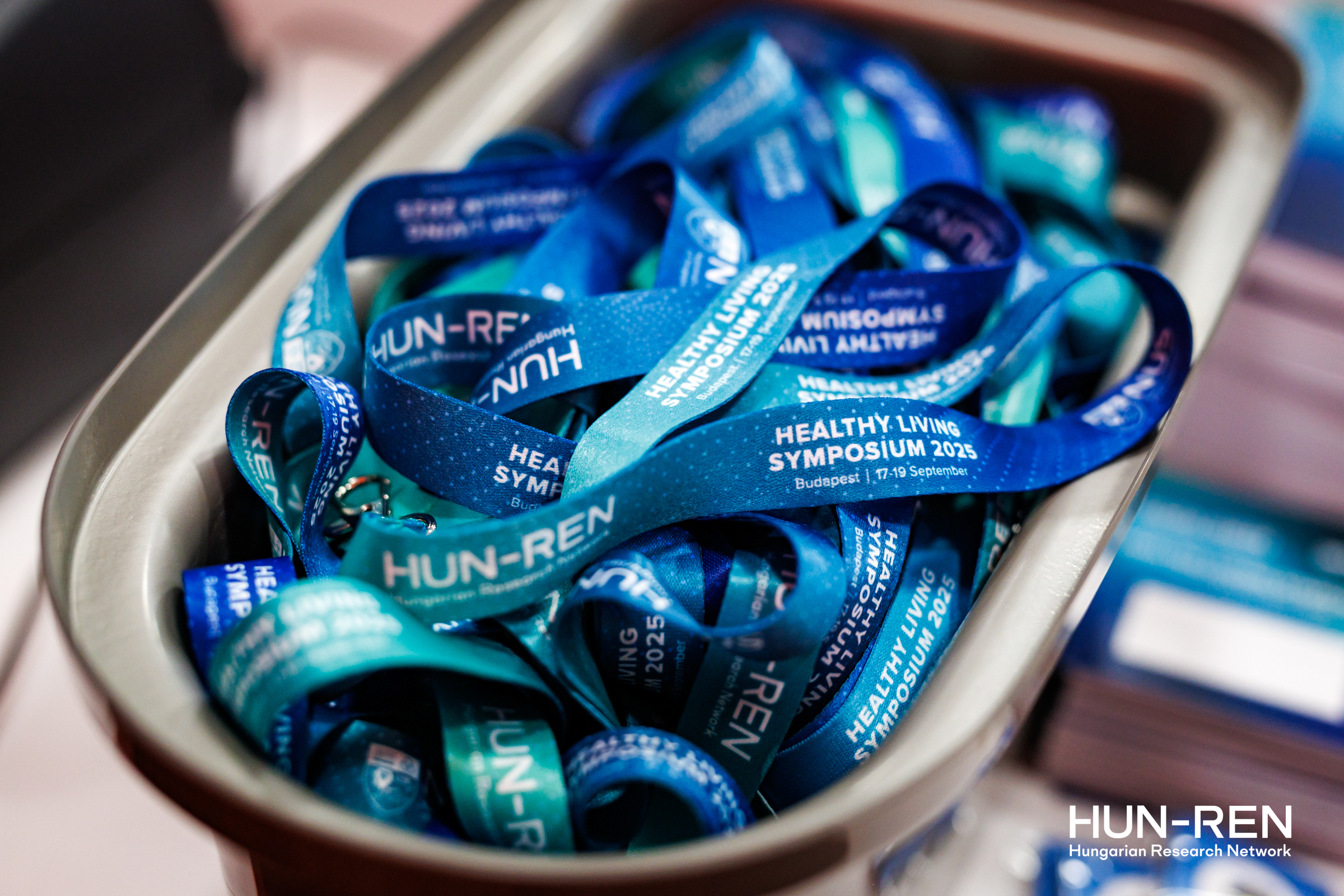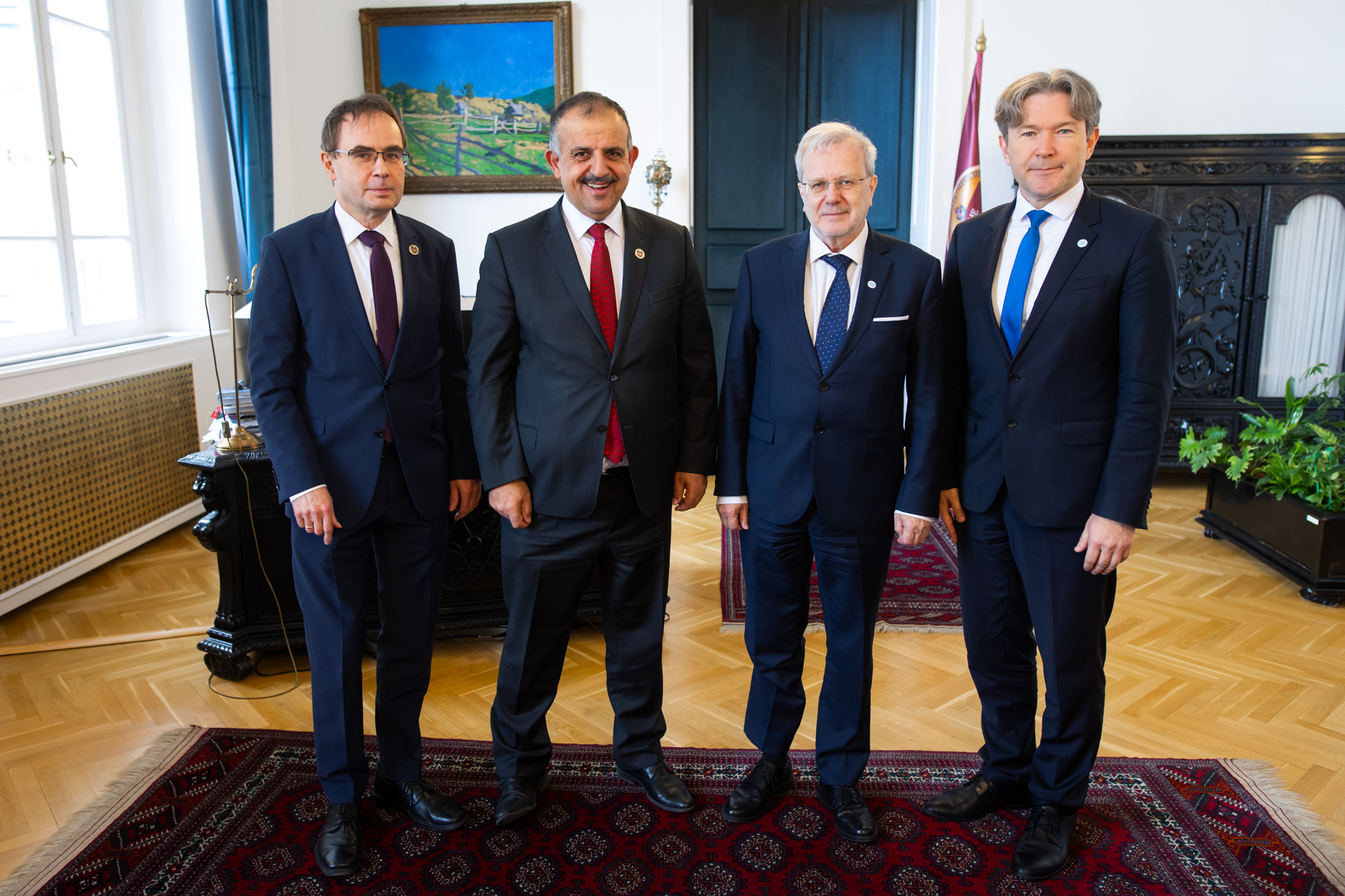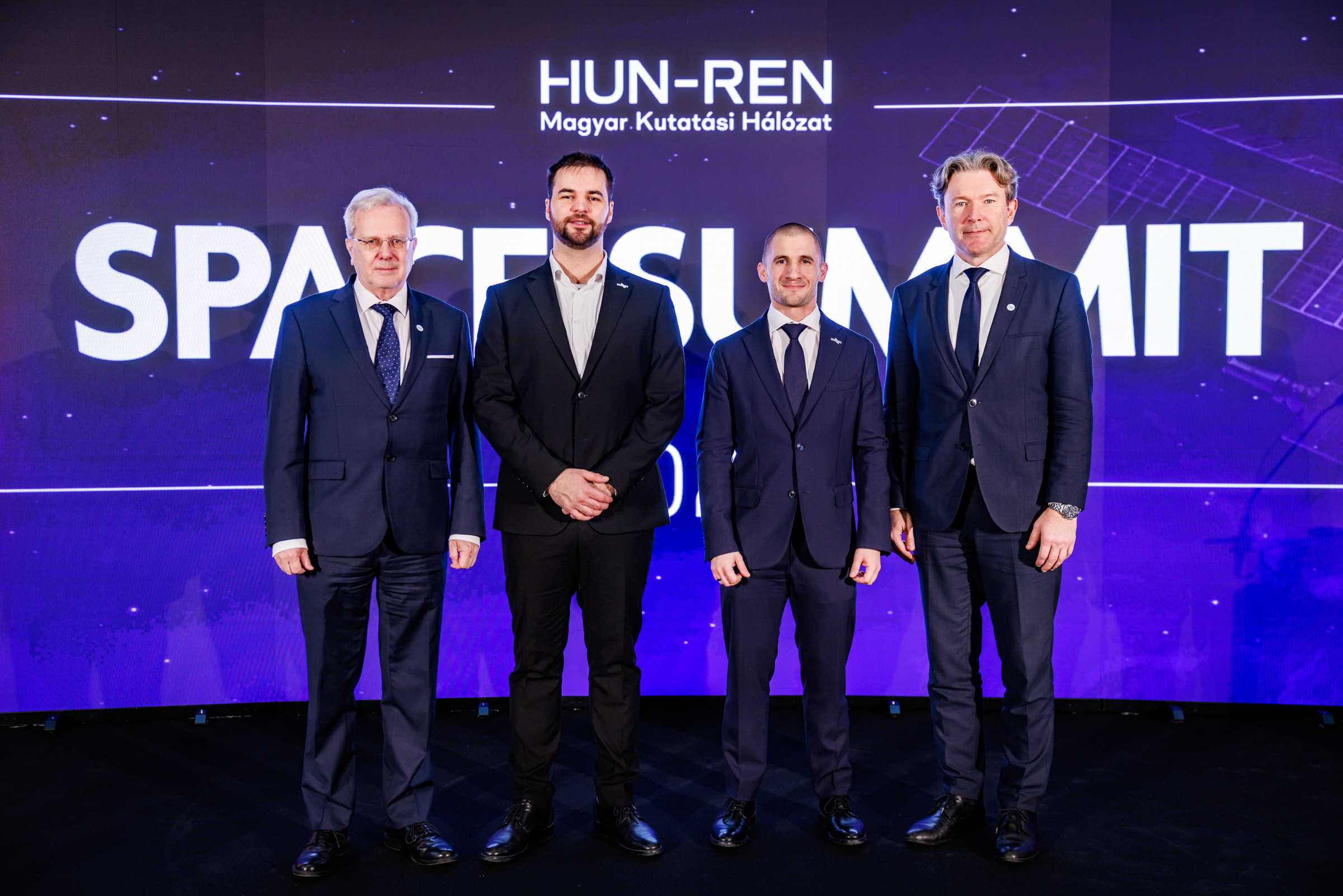The Science of Healthy Living Takes Centre Stage at the Puskás Aréna — Healthy Living Symposium 2025 Opens
The Healthy Living Symposium 2025, co-organised by HUN-REN and the National University of Singapore, opened with three engaging themes: longevity science, ageing research and the relationship between the arts and healthy living. On the first day, leading international researchers — among them John Eu-Li Wong, John Rasko and Kian-Woon Kwok — gave talks.
‘Our event beginning today highlights the role, responsibilities and mission of Hungary and HUN-REN in the health sciences and innovation, while also reinforcing our strong partnerships with institutions worldwide, including the National University of Singapore and the many other organisations represented here today,’ said Balázs Gulyás, President of HUN-REN, at the opening of the Healthy Living Symposium 2025.
emphasised Balázs Gulyás. He added that responsibility in this area is shared: by individuals who make healthier choices; by companies that safeguard their employees’ wellbeing; and by societies that place health and longevity at the centre of their development.
‘One of the great marvels of the twentieth century is that life expectancy has almost doubled,’ said John Eu-Li Wong, Professor of Medicine at the National University of Singapore, in the conference’s opening keynote address. ‘In 1900 the global average was around 47 years; in Hungary it has risen to nearly 77 and in Singapore to just over 83. This is a remarkable achievement we should all celebrate.’ He added that another striking trend has unfolded in parallel: ‘the global fertility rate has fallen by more than 50 per cent. Shortly before the COVID-19 pandemic, the two curves crossed — today there are more older people than young in the world.’
Wong highlighted that a global demographic transition is under way. While Mozambique still shows the classic age pyramid and India’s population continues to grow, about two-thirds of the world is already below replacement-level fertility. He noted that, as early as 2017, the United Nations identified population ageing as one of the most significant social transformations of the twenty-first century, with effects across almost every sector. ‘Moreover, this is happening much faster than demographers had anticipated,’ he added.
‘The problem is not a long-lived population but rather that we have yet to remove the barriers that would enable people to reach older age in good health and continue contributing to their families and society,’ Wong emphasised.
Péter Hegyi, Director of the Centre for Translational Medicine at Semmelweis University, gave a detailed overview of healthy living and longevity in Europe and Hungary.
In the morning session, Paul Matthews, Director of the Rosalind Franklin Institute, and Lars Nyberg, Professor of Psychology and Neuroscience at Umeå University, outlined the role of biobanks and longitudinal studies in the field. They presented several models and studies that could provide important new insights into age-related changes in the brain and cognition.
Predictive models and the future of longevity
‘Healthy ageing is one of the foremost goals of modern medicine,’ said John Rasko, Professor at the University of Sydney. ‘Gene and cell therapies offer revolutionary potential for treating cancer, genetic disease and the effects of ageing; at the same time, overblown promises and dubious “longevity clinics” pose serious risks.’ In his lecture, he delineated the boundary between genuine scientific breakthroughs and deceptive practices. The thematic session that followed showcased differing approaches to ageing research and ageing prediction, with contributions from Jan Gruber, Christopher Li-Hsian Chen and Tibor Vellai.
The afternoon panel discussion, titled ‘Future Directions for Health and Longevity in Hungary’ and featuring Balázs Gulyás, President of HUN-REN, Péter Bíró, head of the National Sports Agency, and Zoltán Ungvári, Research Professor at Semmelweis University, explored key questions in health, education and society in Hungary. Balázs Gulyás said that being healthy means more than saying ‘we are not ill’ or ‘we feel well’; it means possessing the fullness of our humanity. He noted that this includes our relationship with the world; our harmony with the natural environment, with other people and with society; and our immediate and wider communities. ‘For me, that is what wholeness means. This understanding of health as WHOLEness is clearly more than the absence of disease,’ he emphasised.
Health and the arts
In the closing session, Kian-Woon Kwok, Vice-Chancellor of the University of the Arts Singapore, reflected on two interrelated concepts — lifespan and healthspan — from the perspectives of the humanities, the social sciences and the arts. The talks that followed approached the theme from different angles, likewise highlighting the relationship between the arts and longevity. Speakers included Michael Koon Boon Tan, Associate Professor and Dean of Research and Knowledge Exchange at the Nanyang Academy of Fine Arts, University of the Arts Singapore (NAFA–UAS), and Indra Selvarajah, Programme Leader, MA Music Therapy, LASALLE College of the Arts, University of the Arts Singapore.
